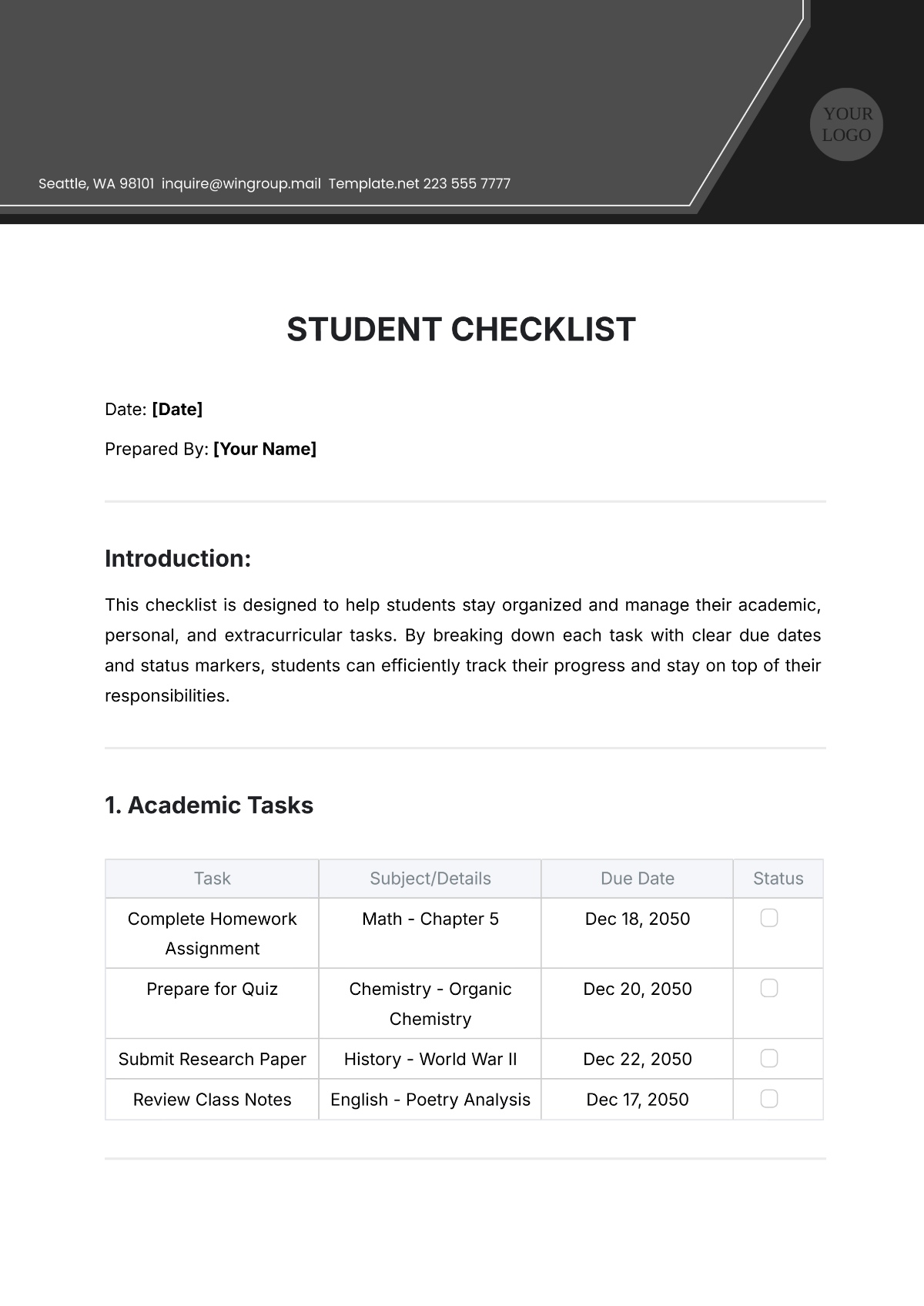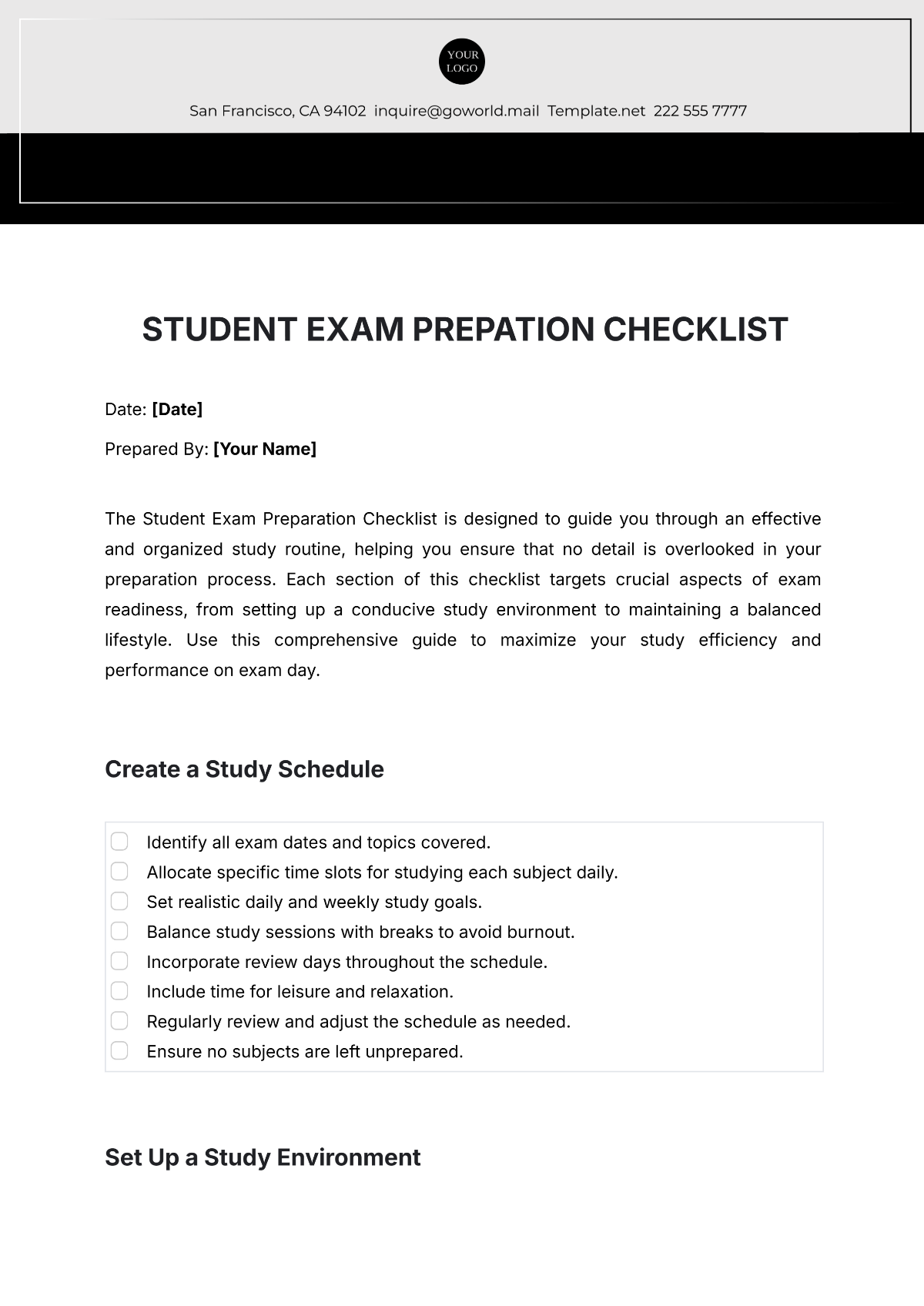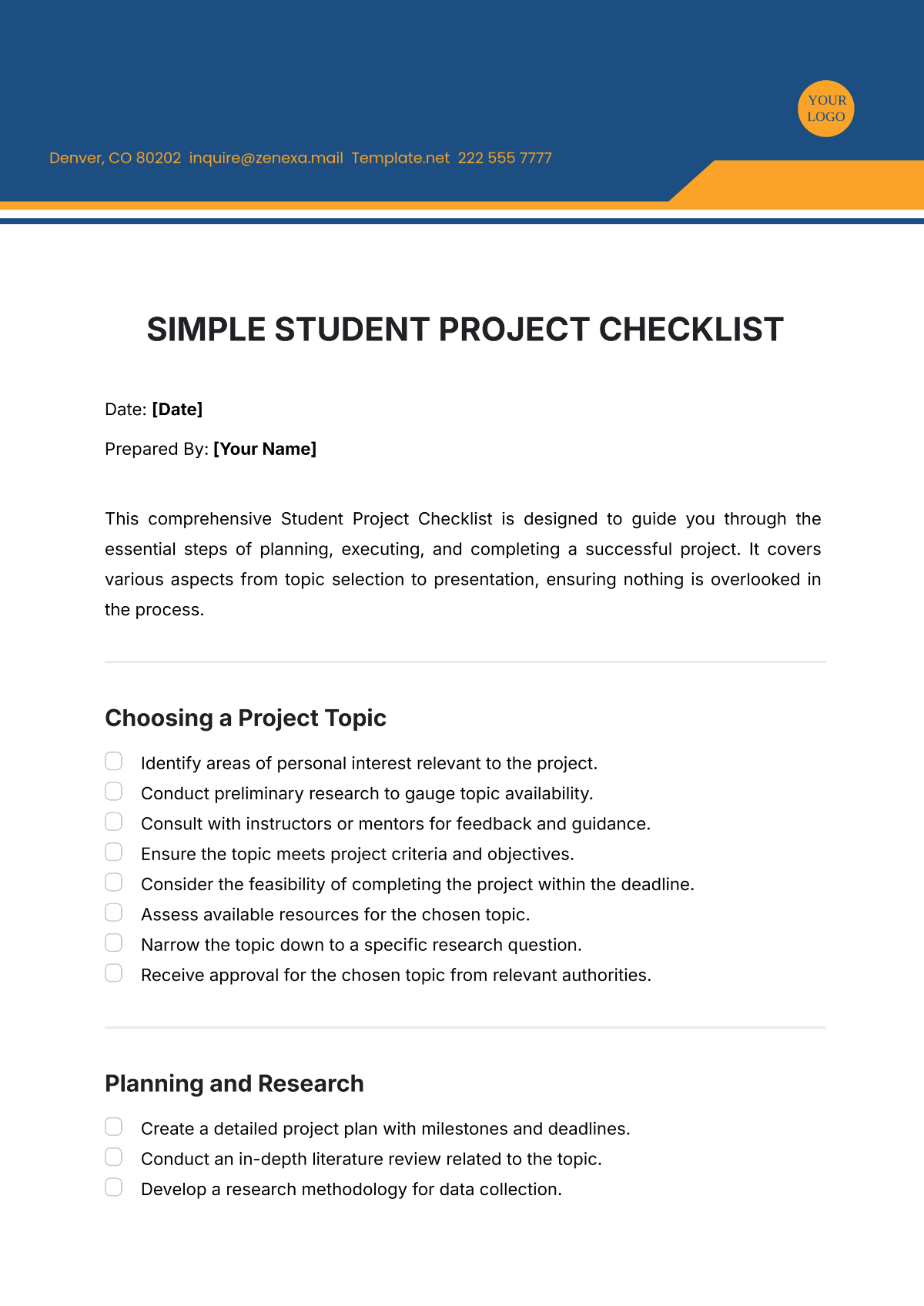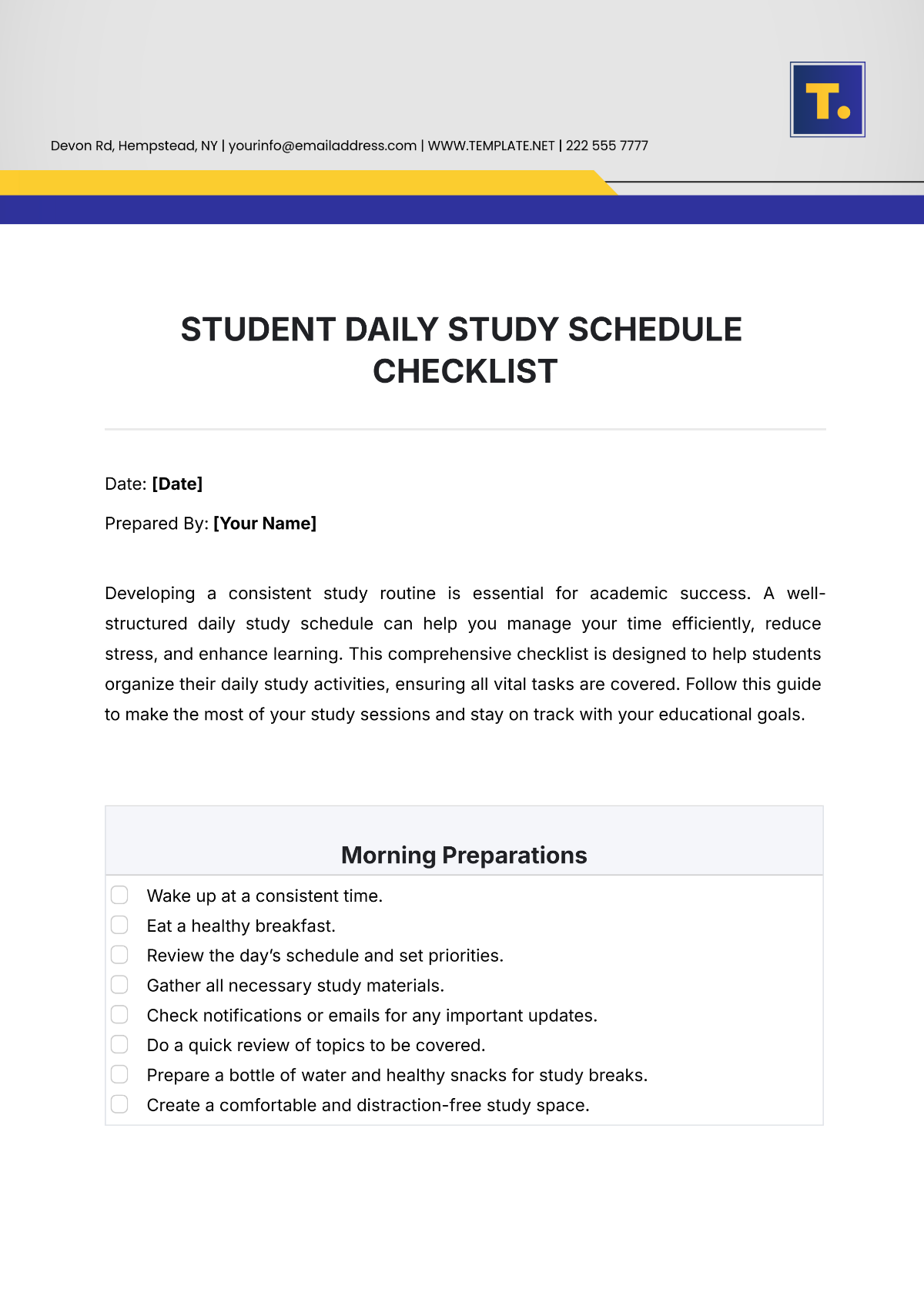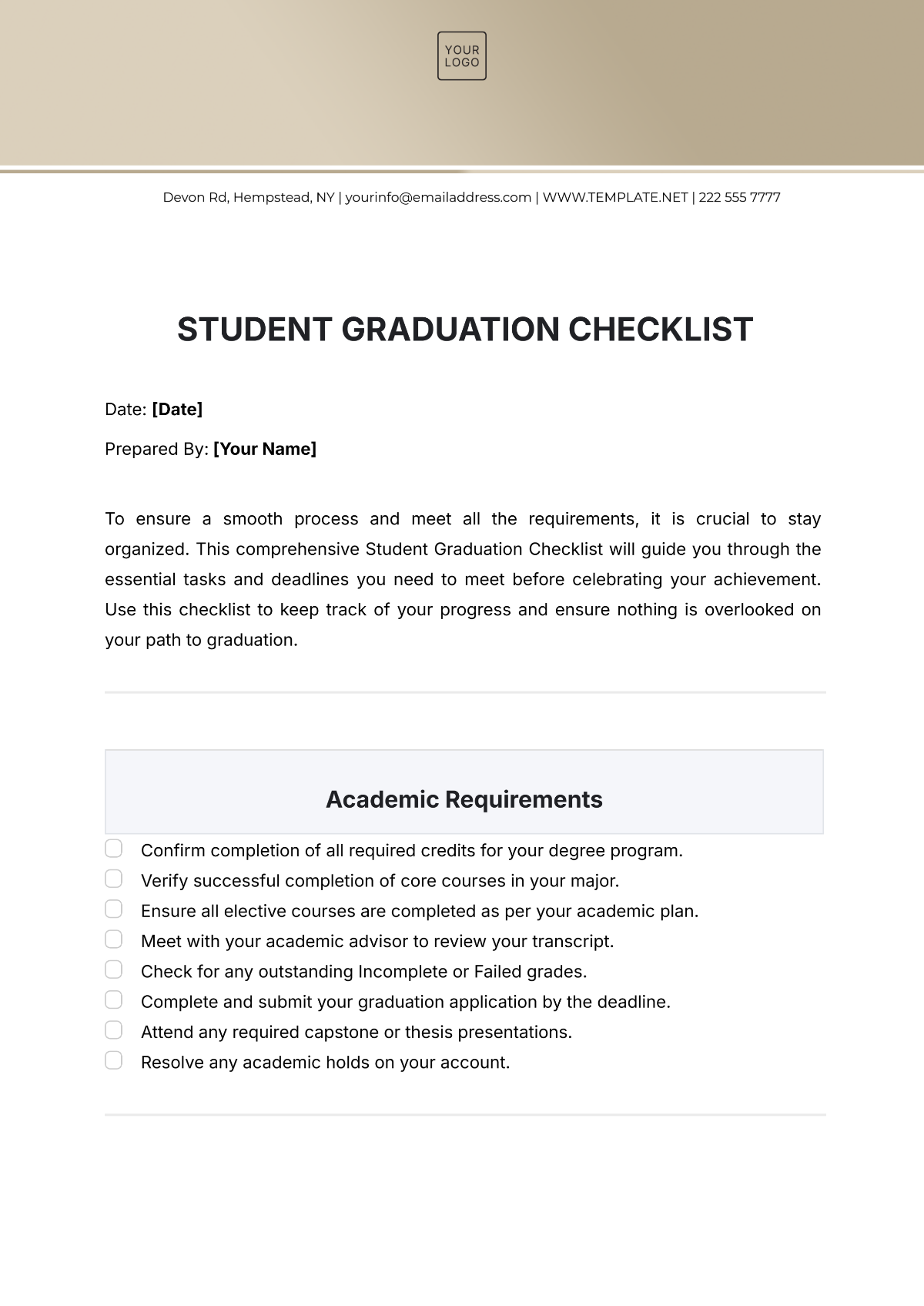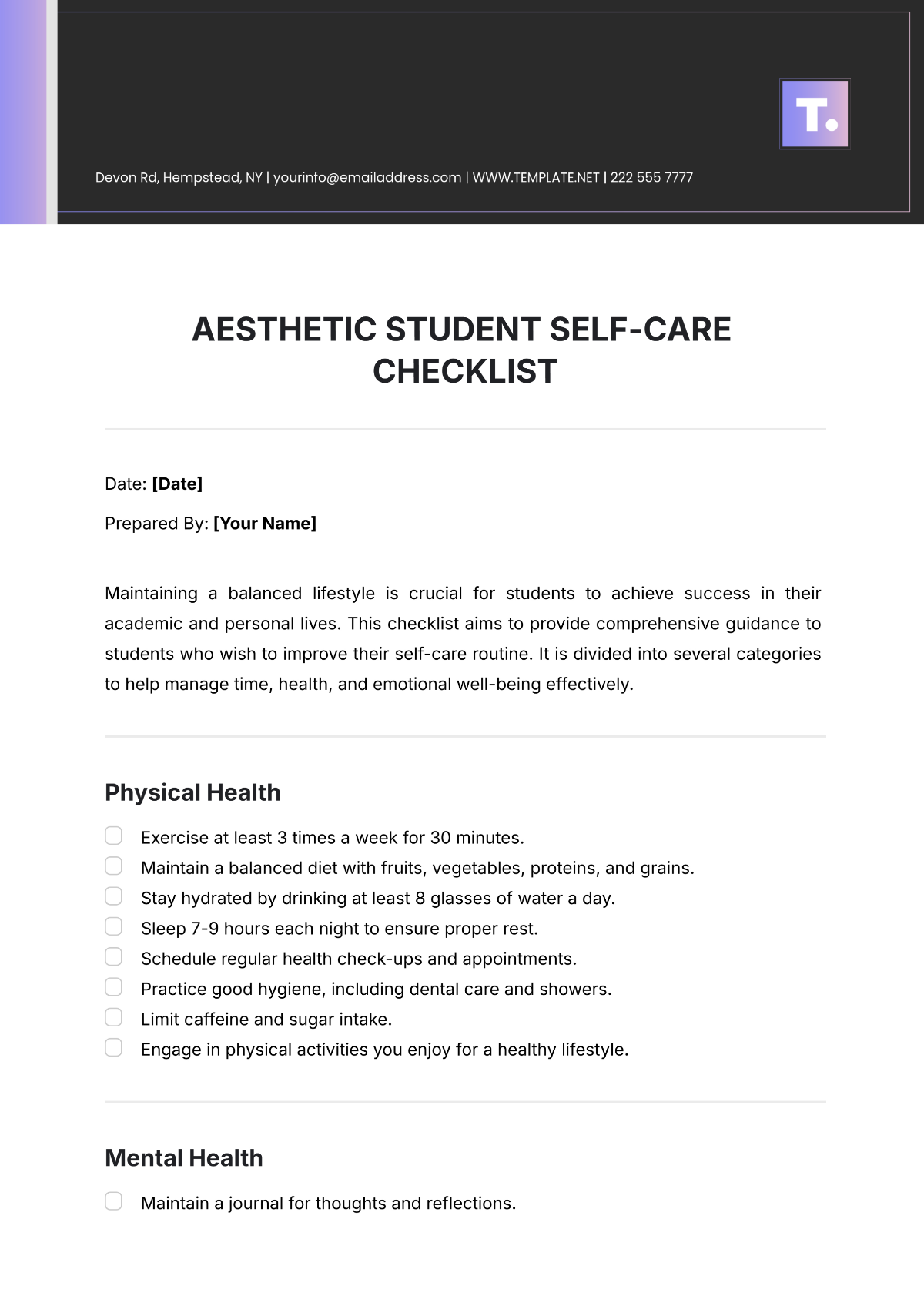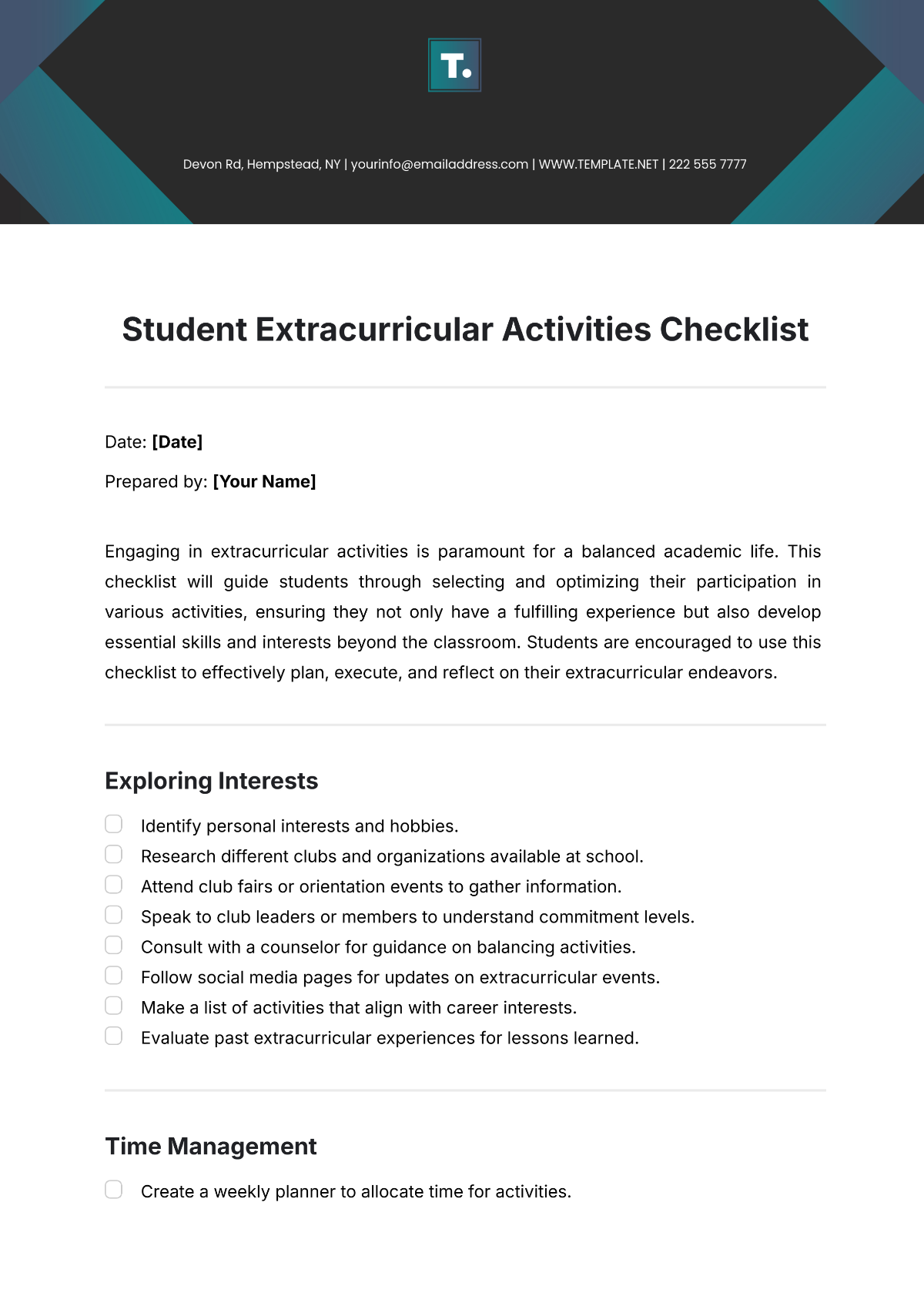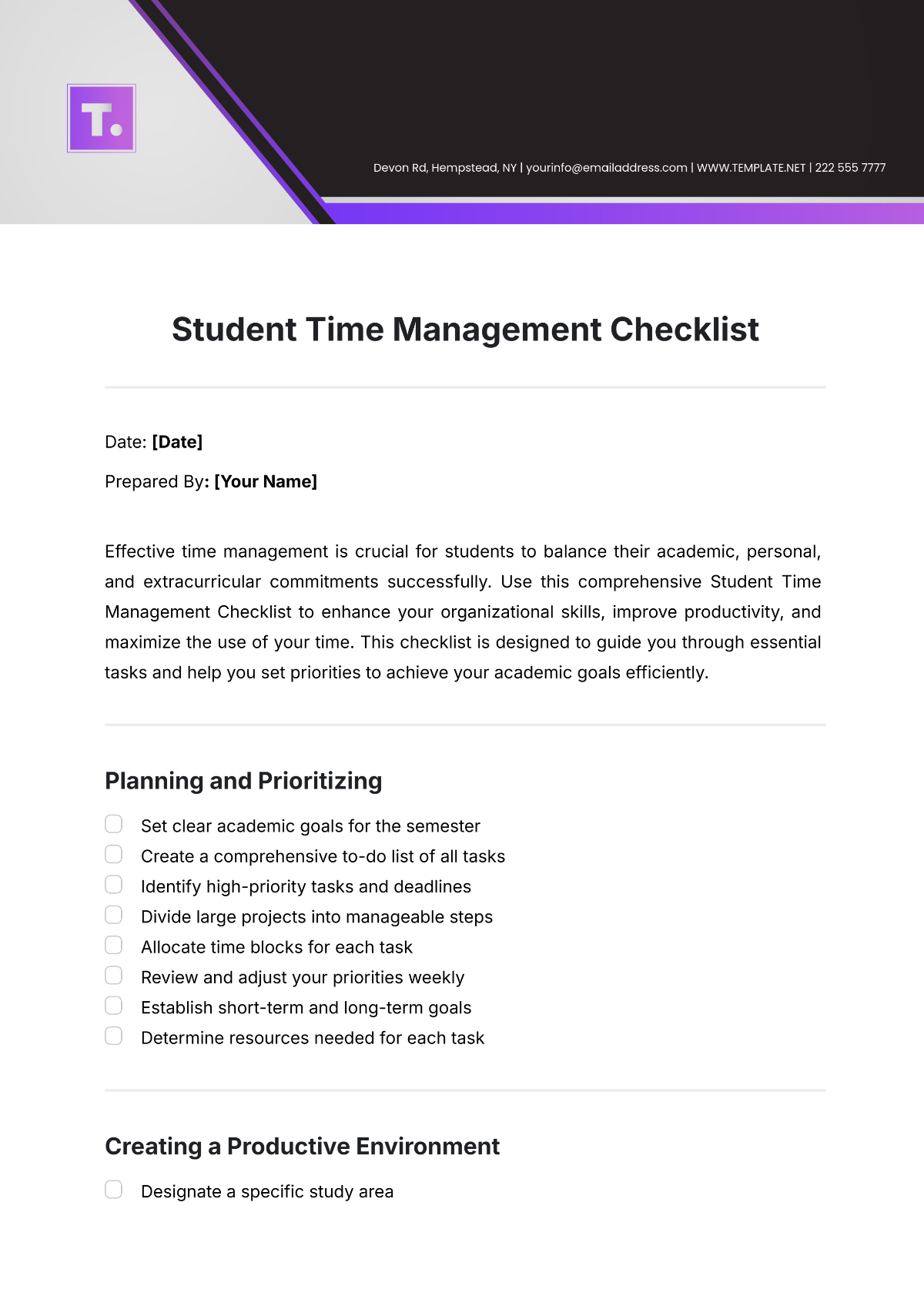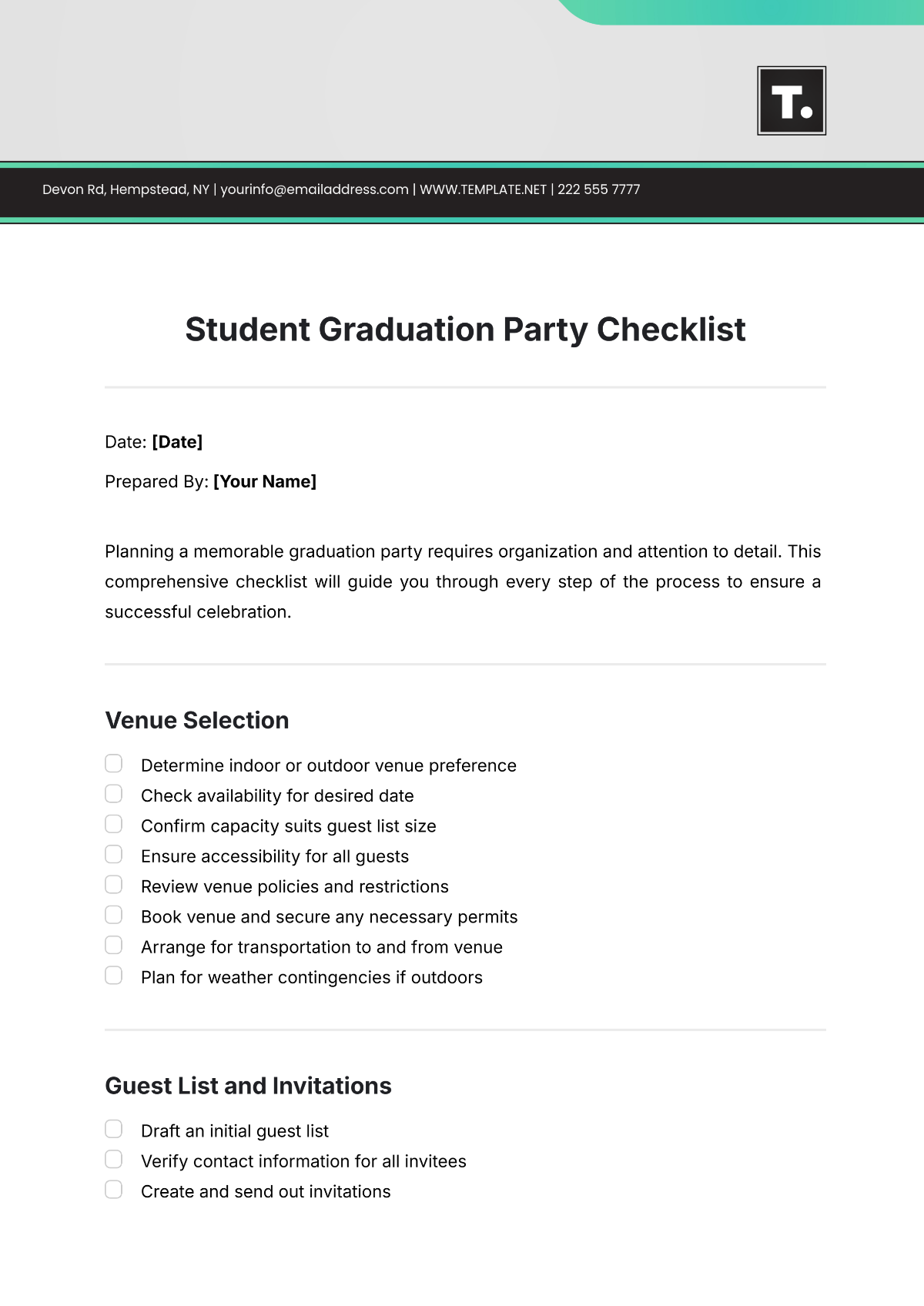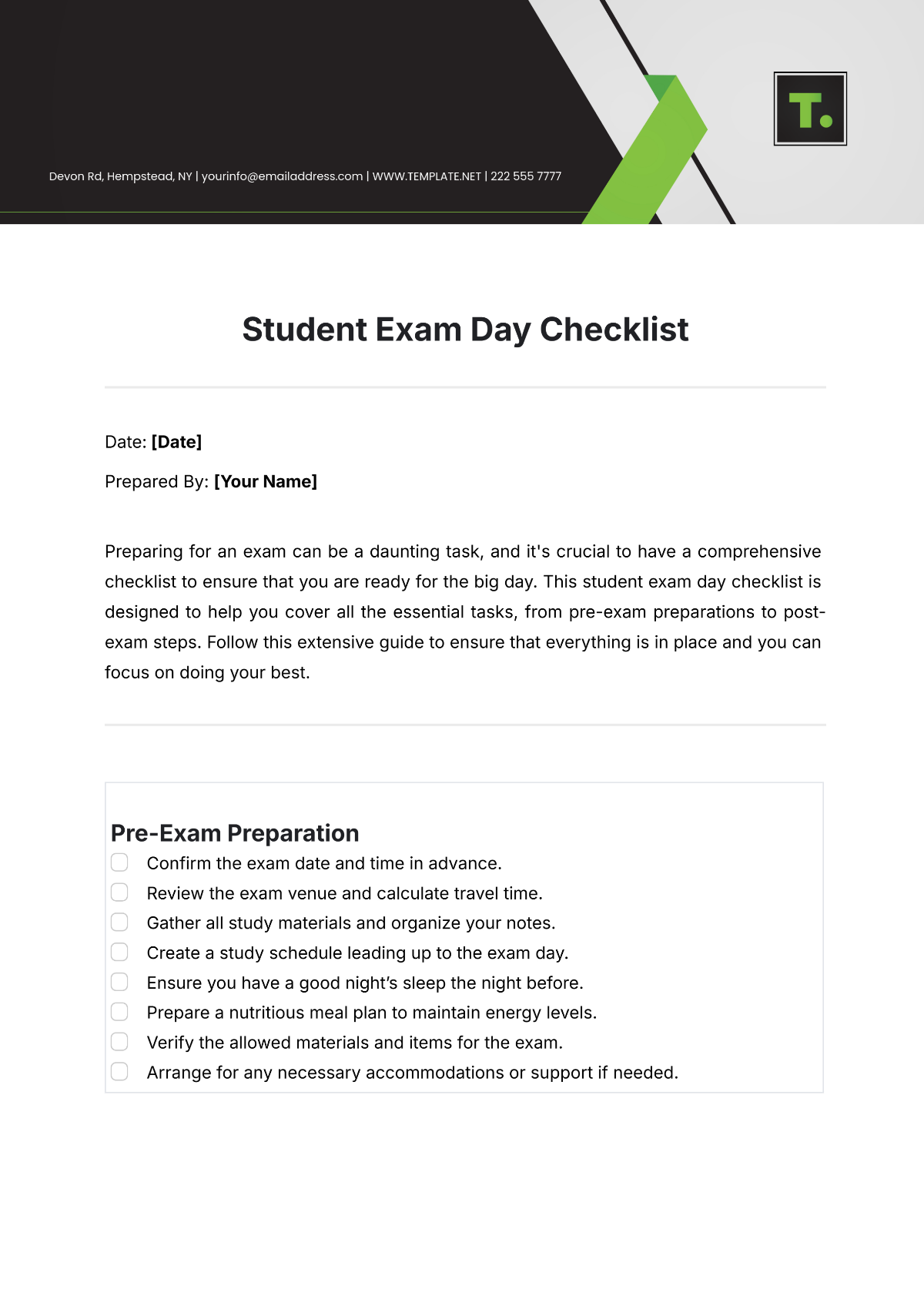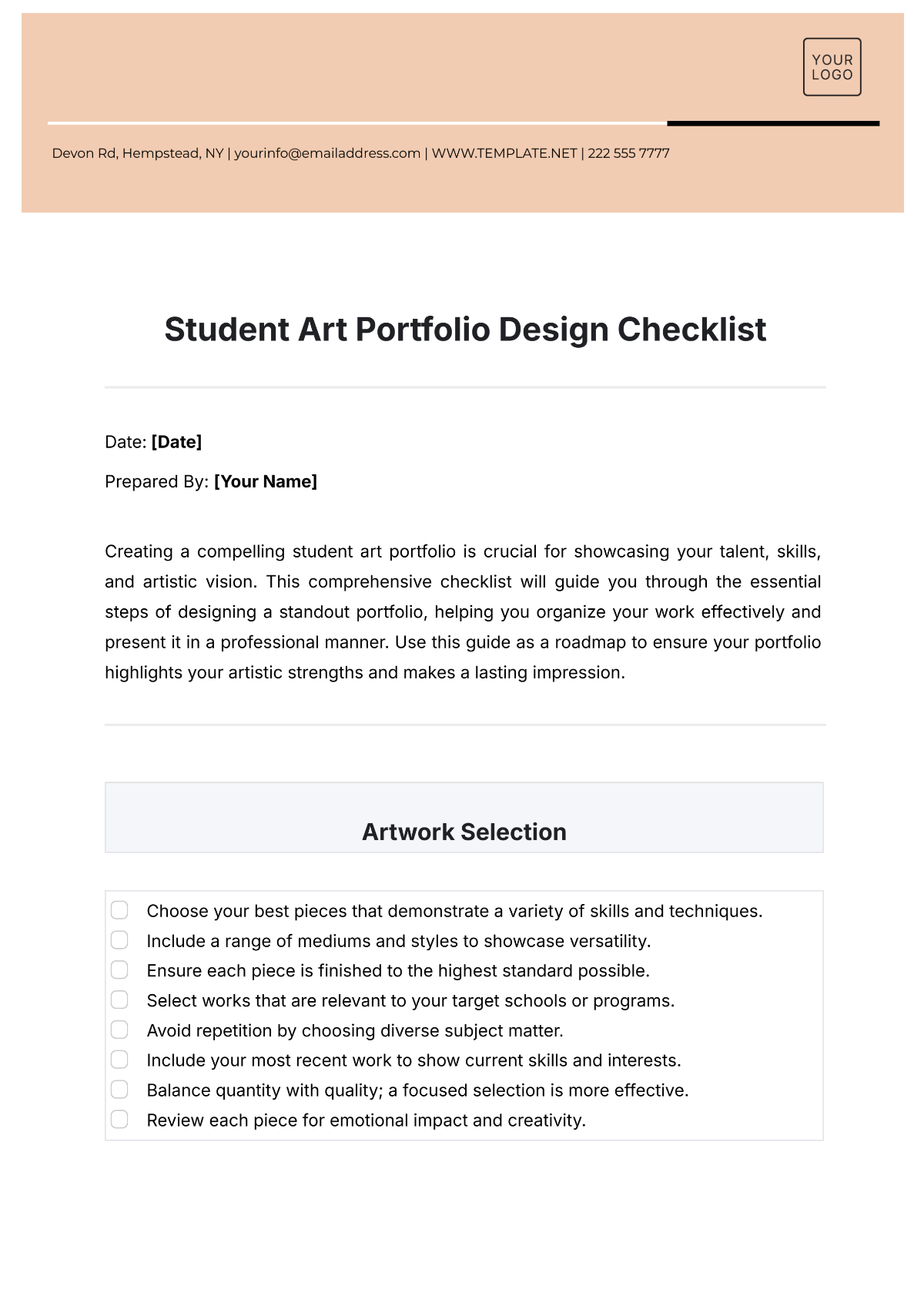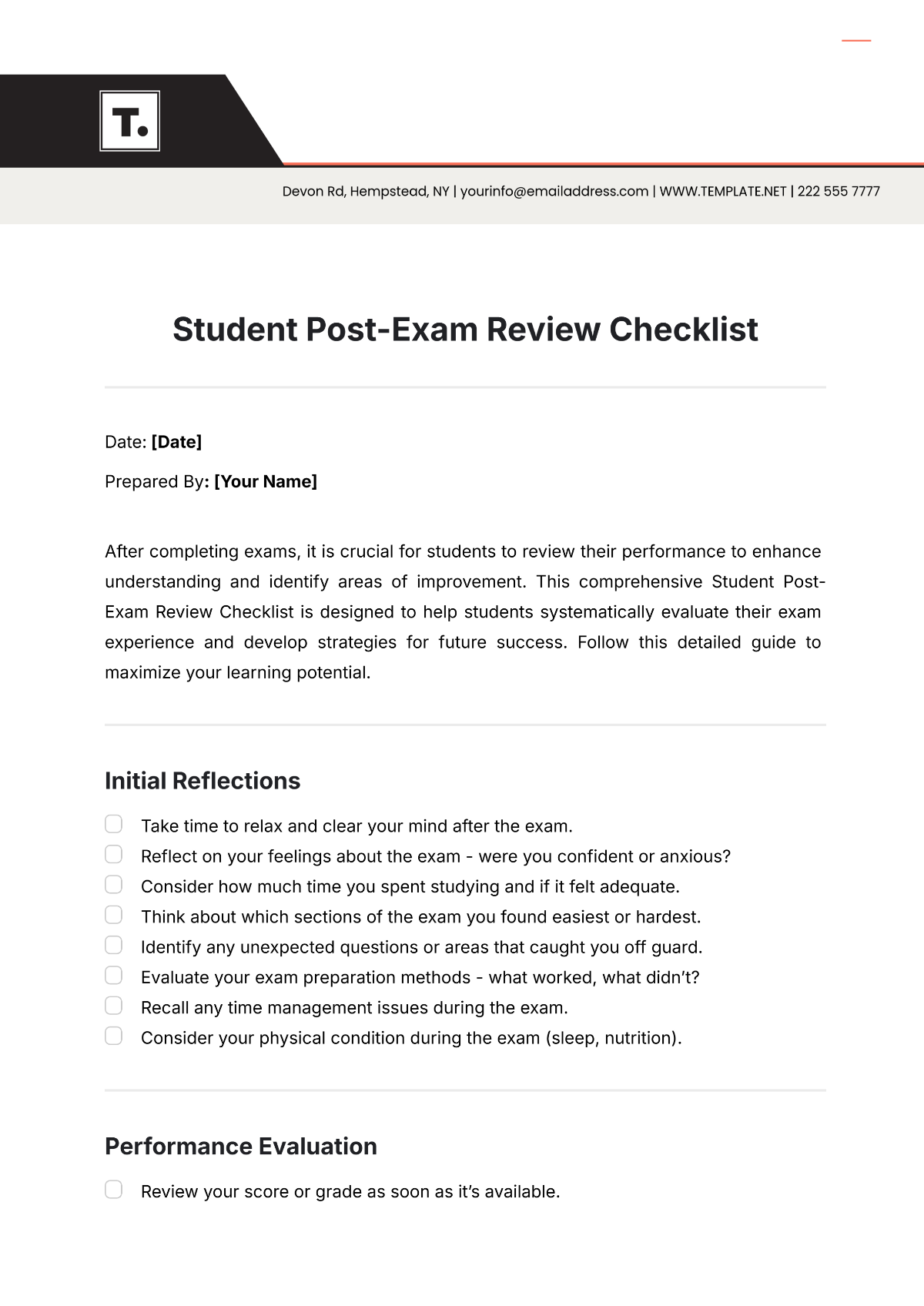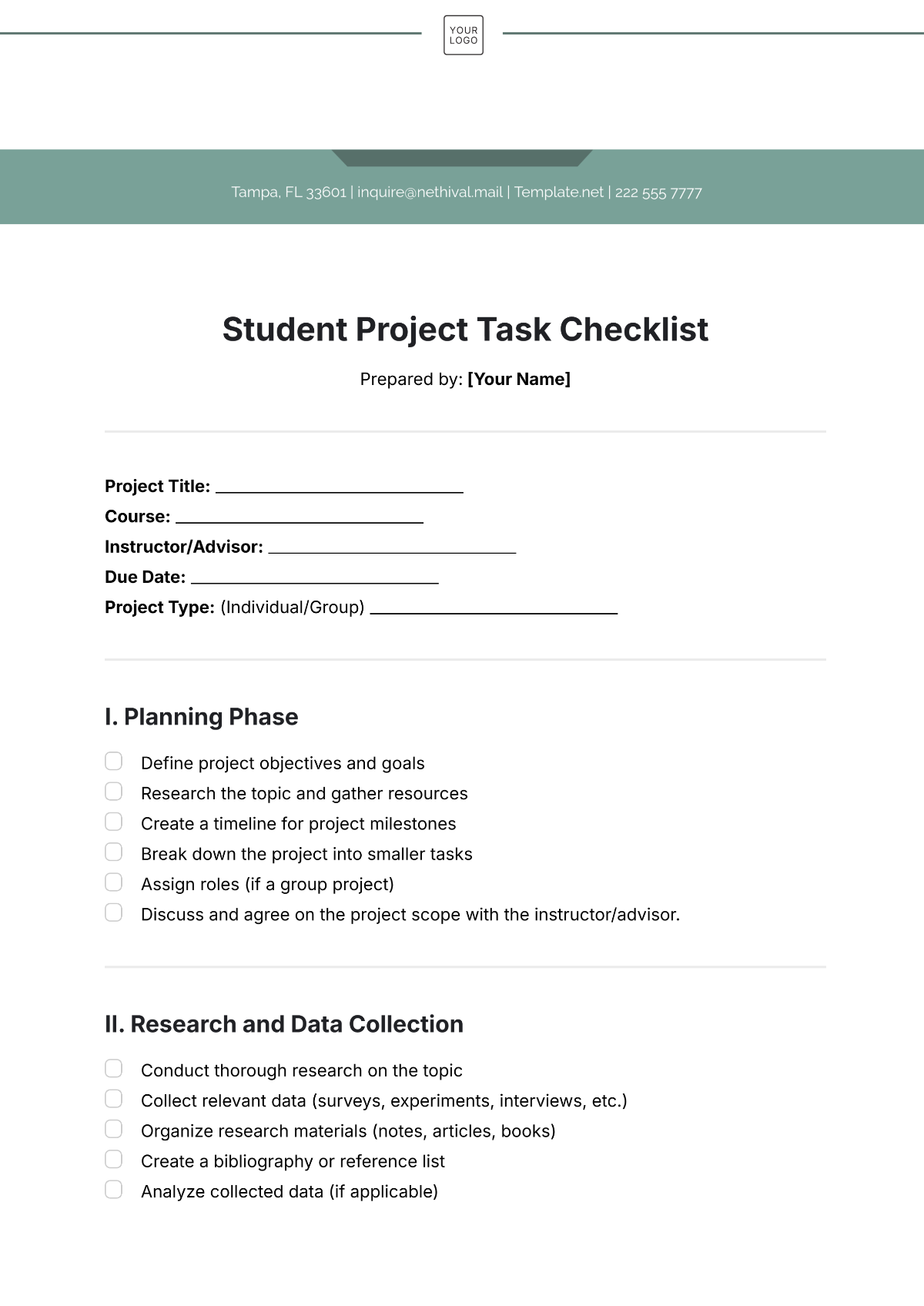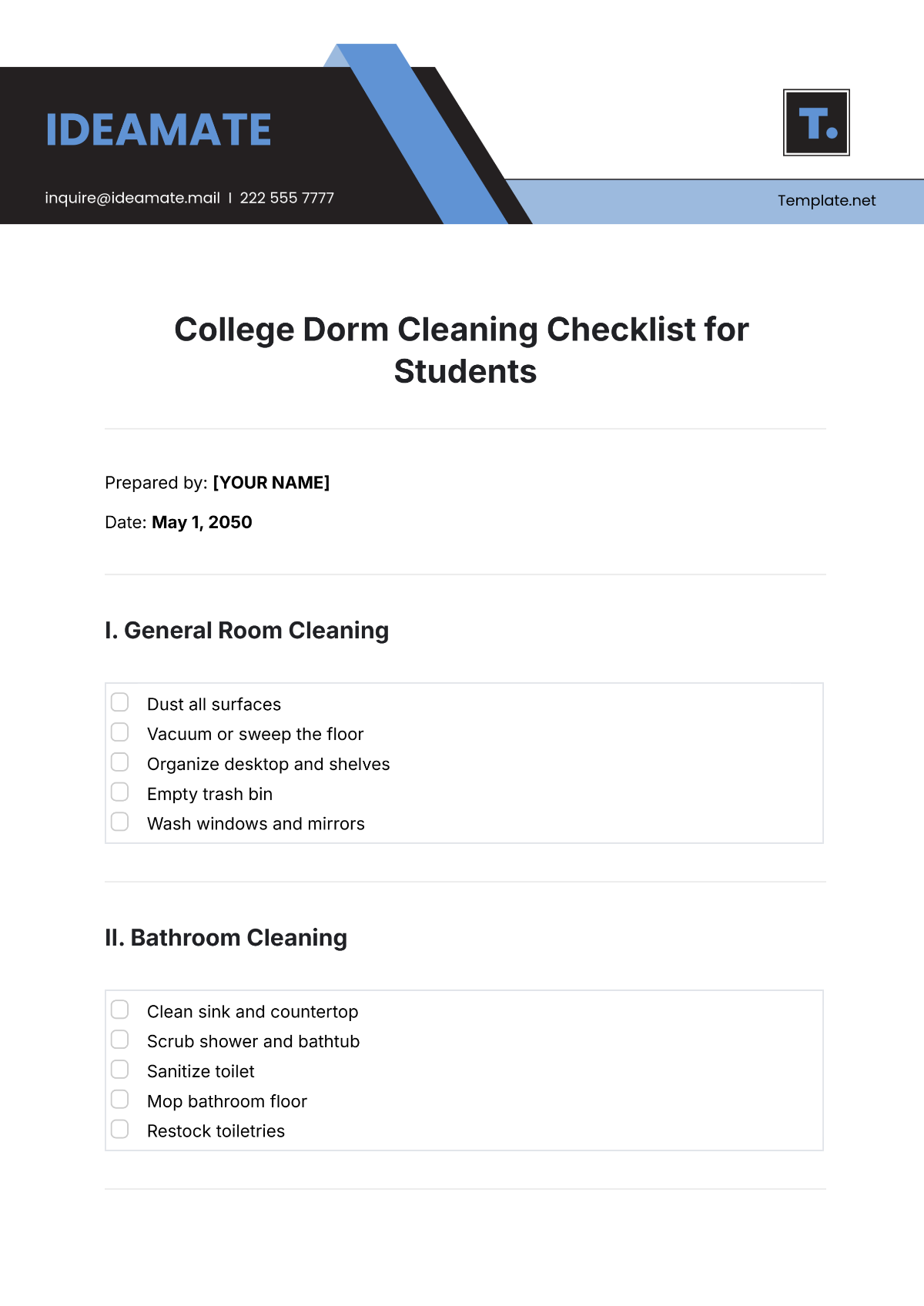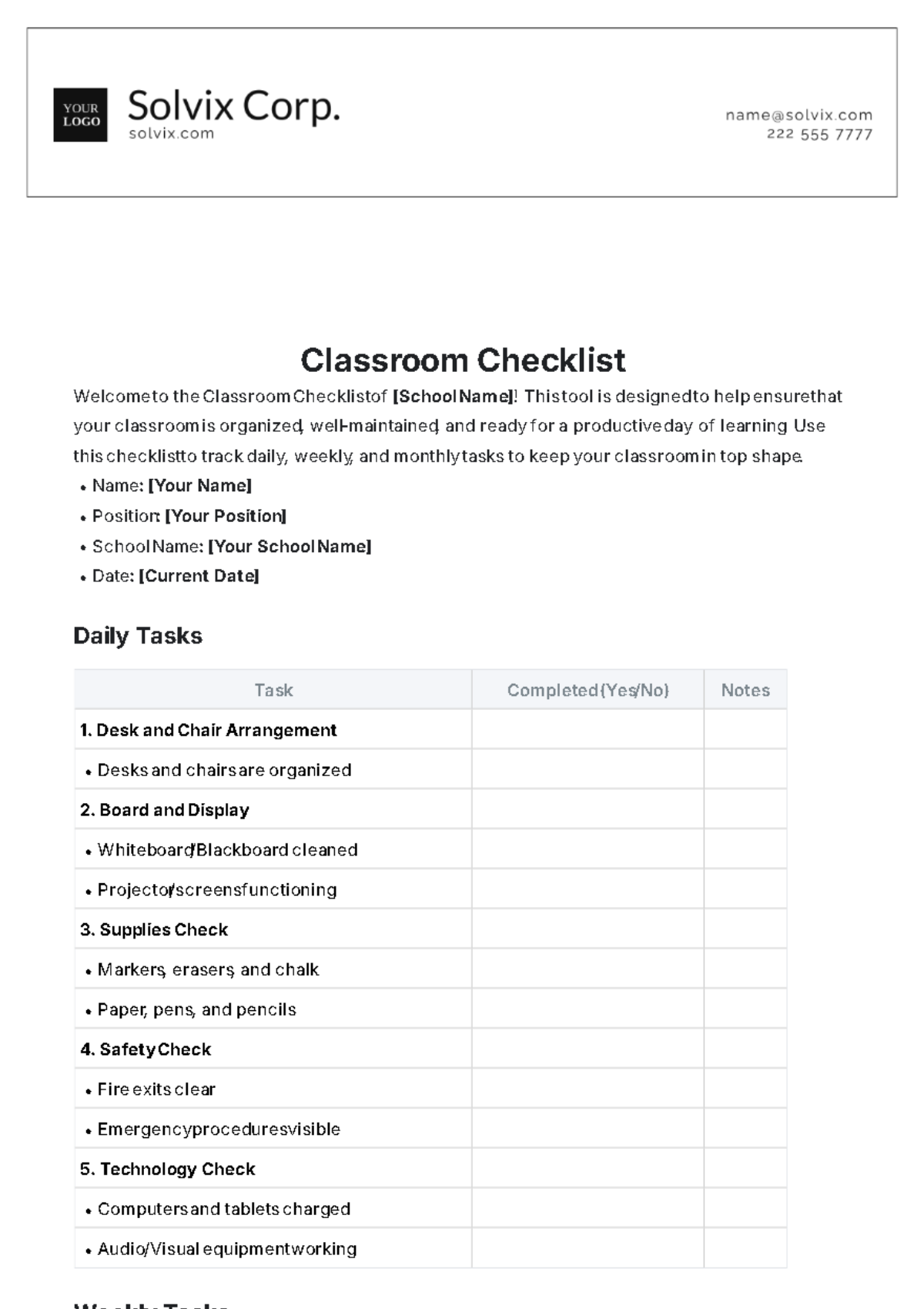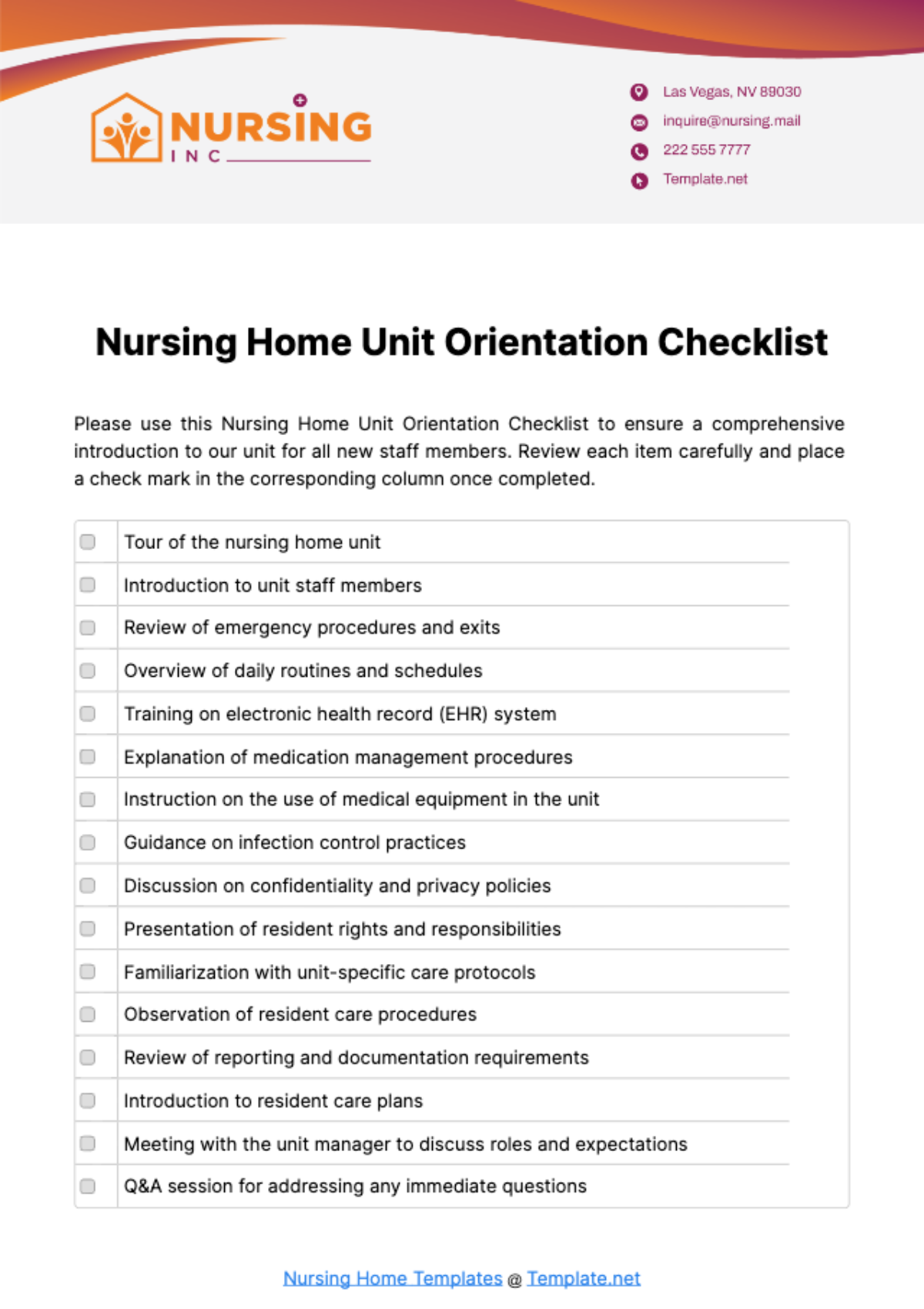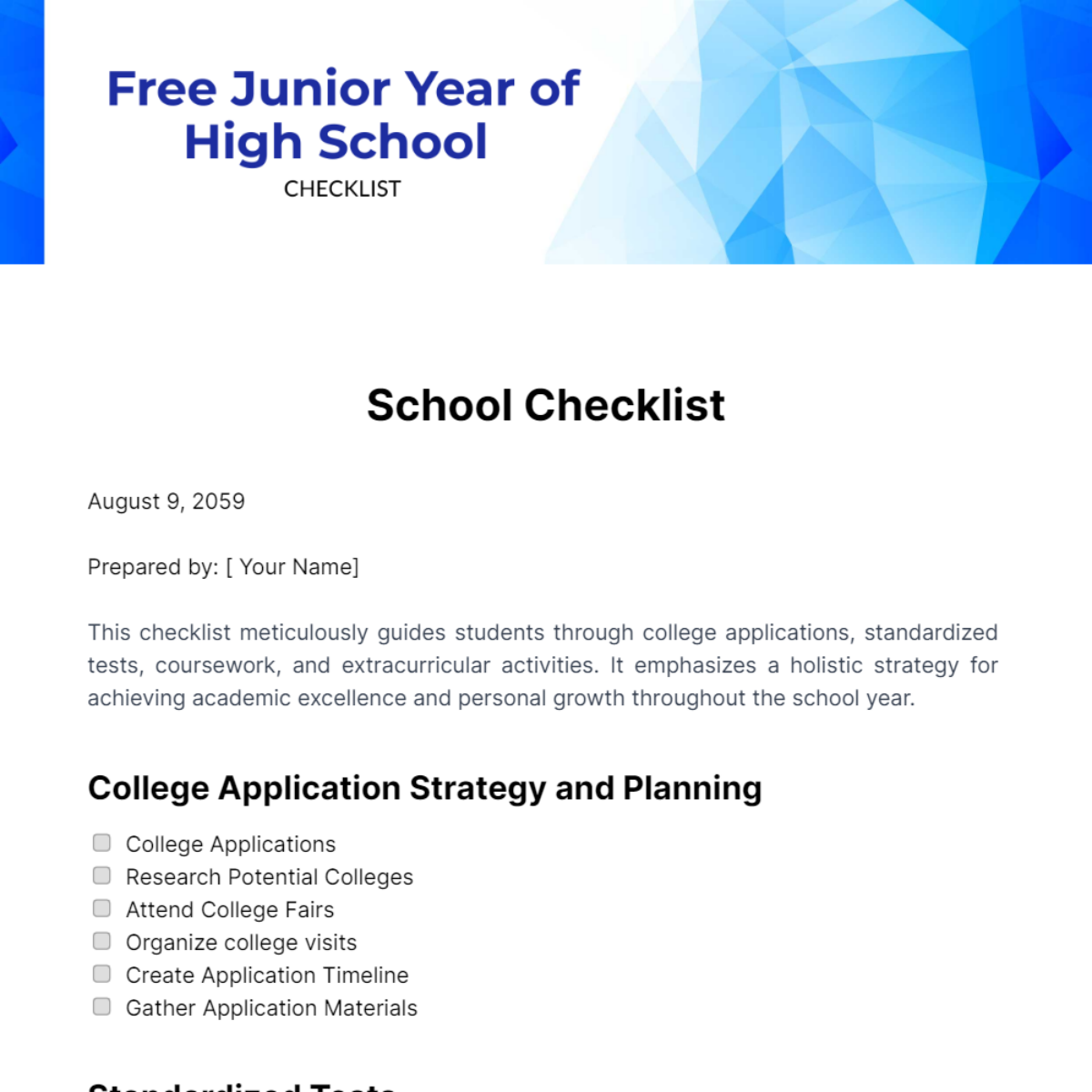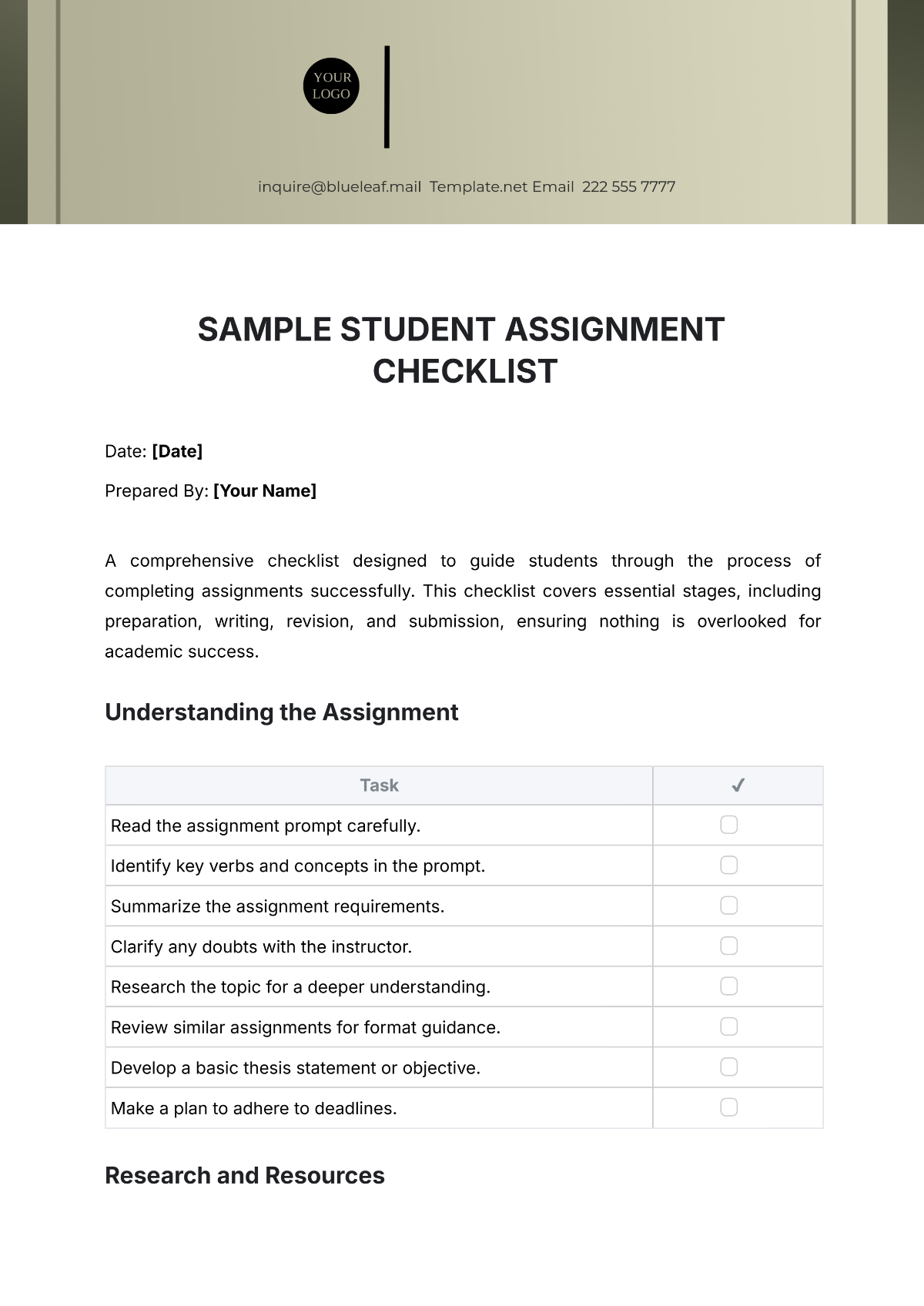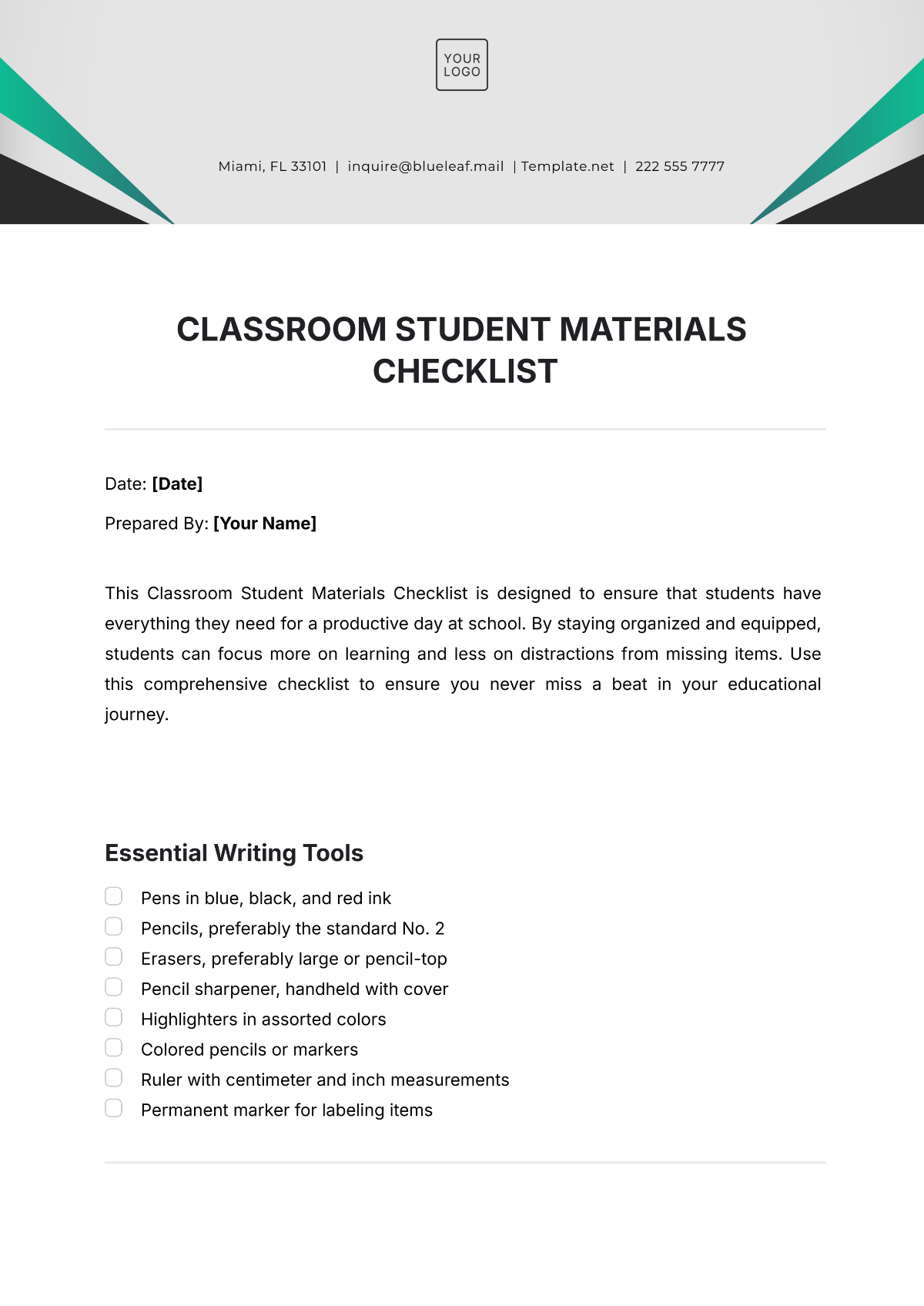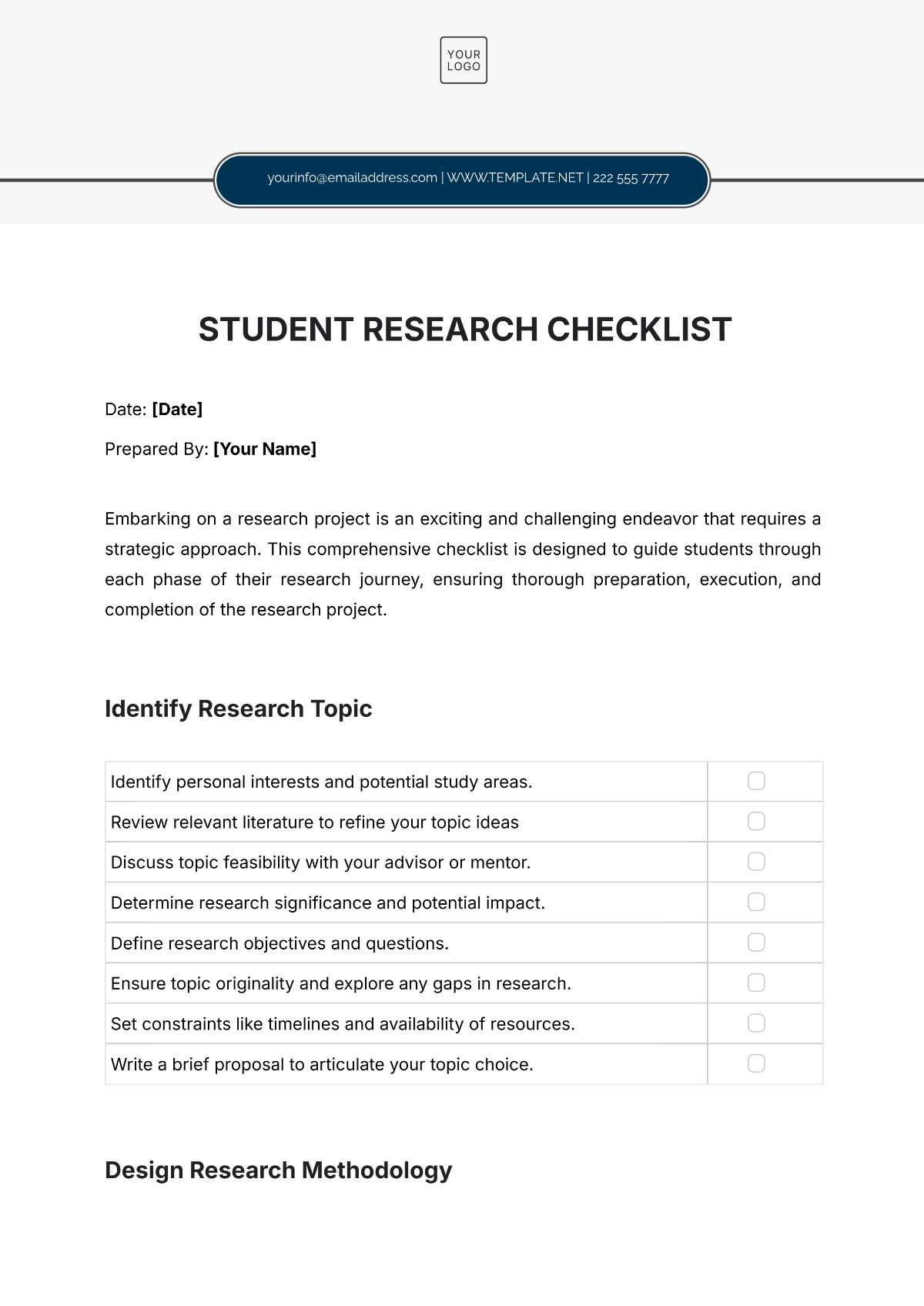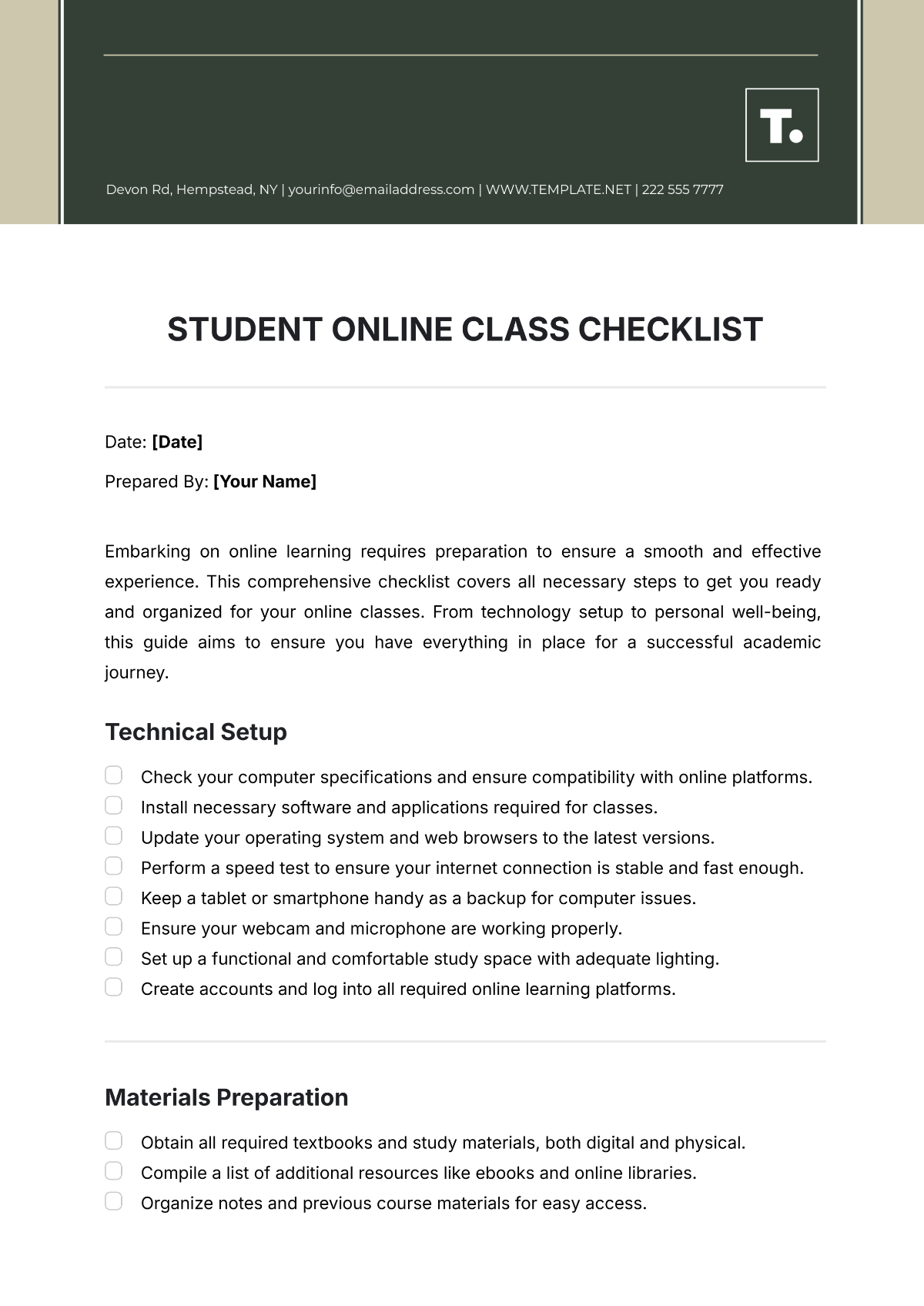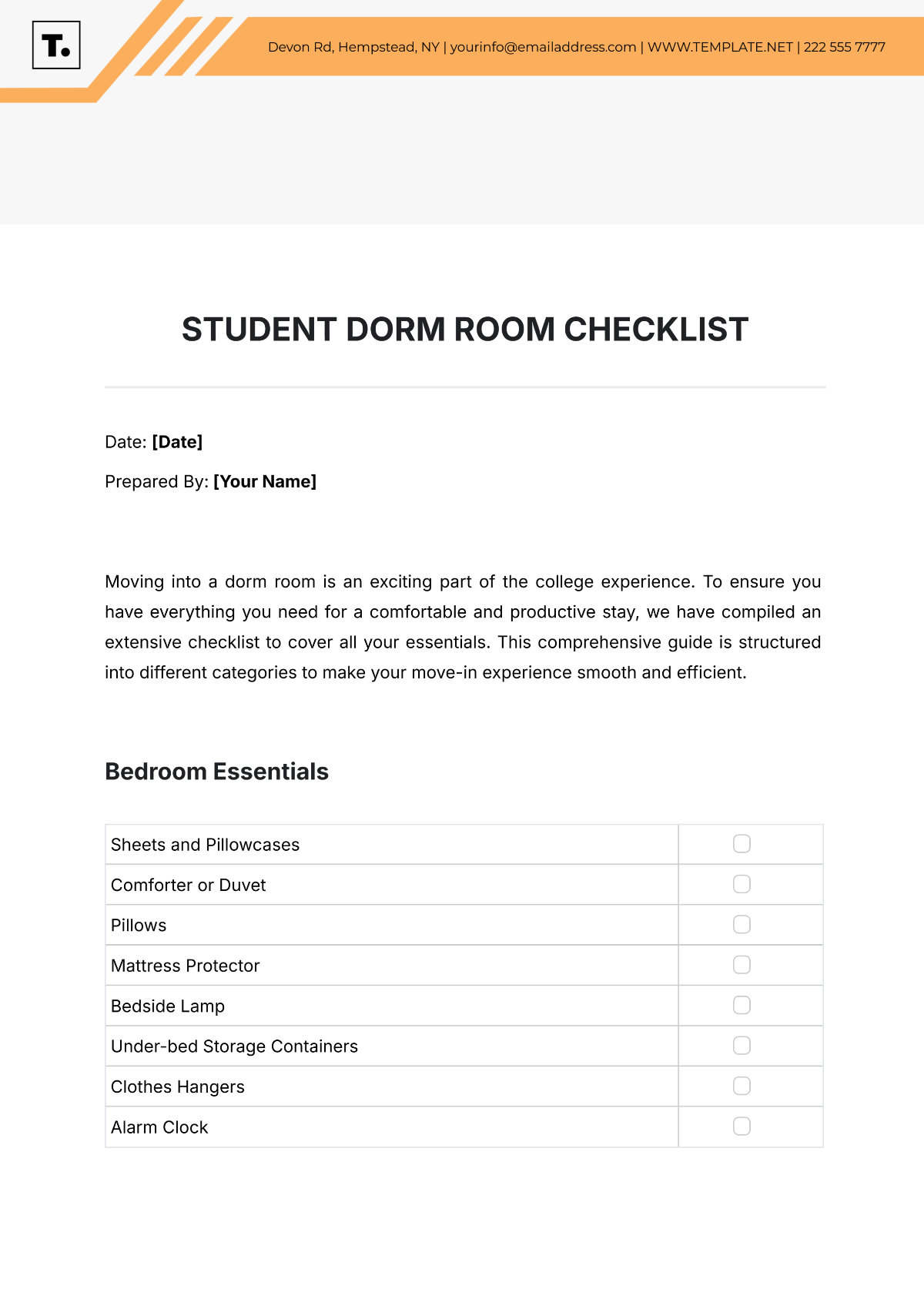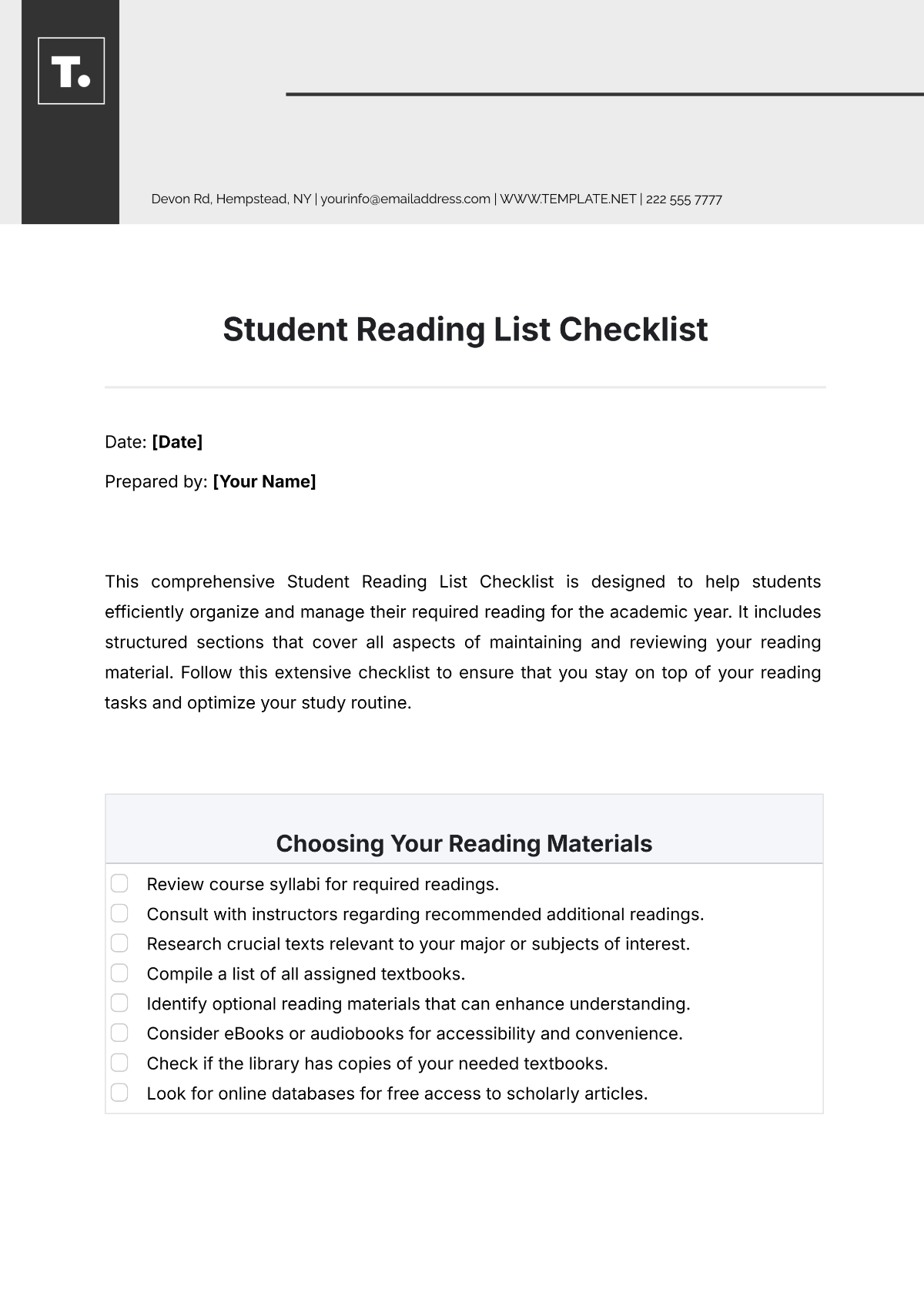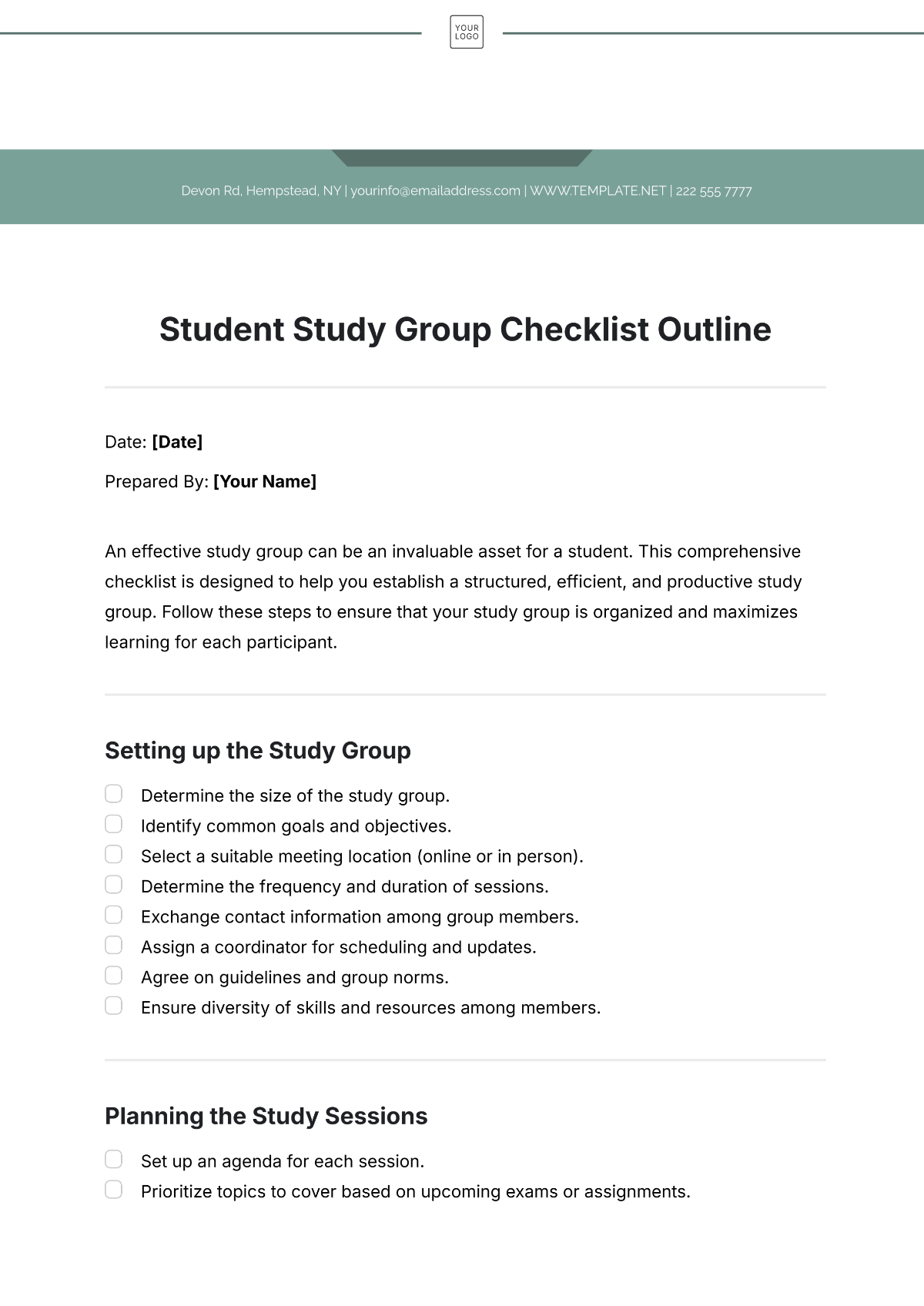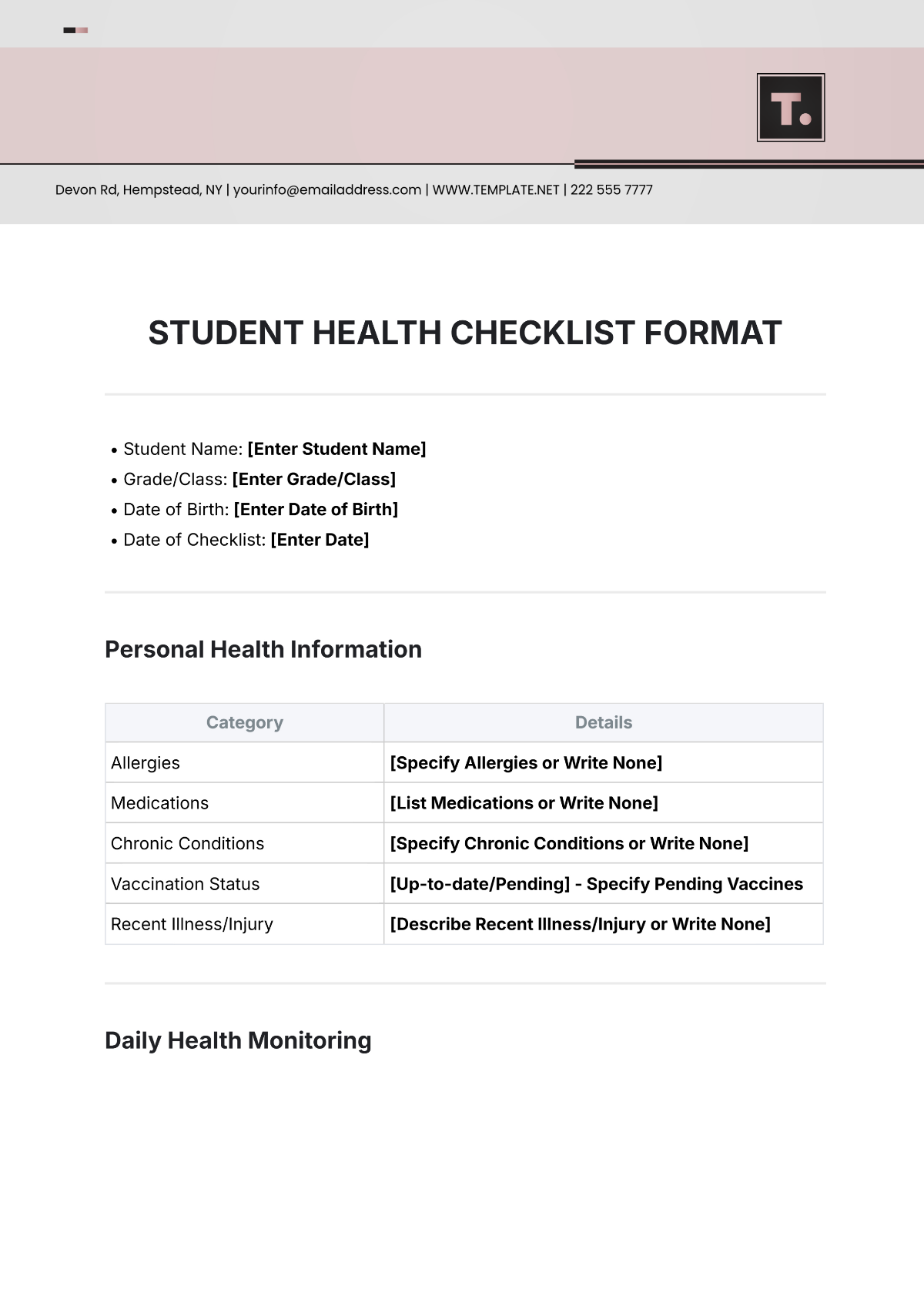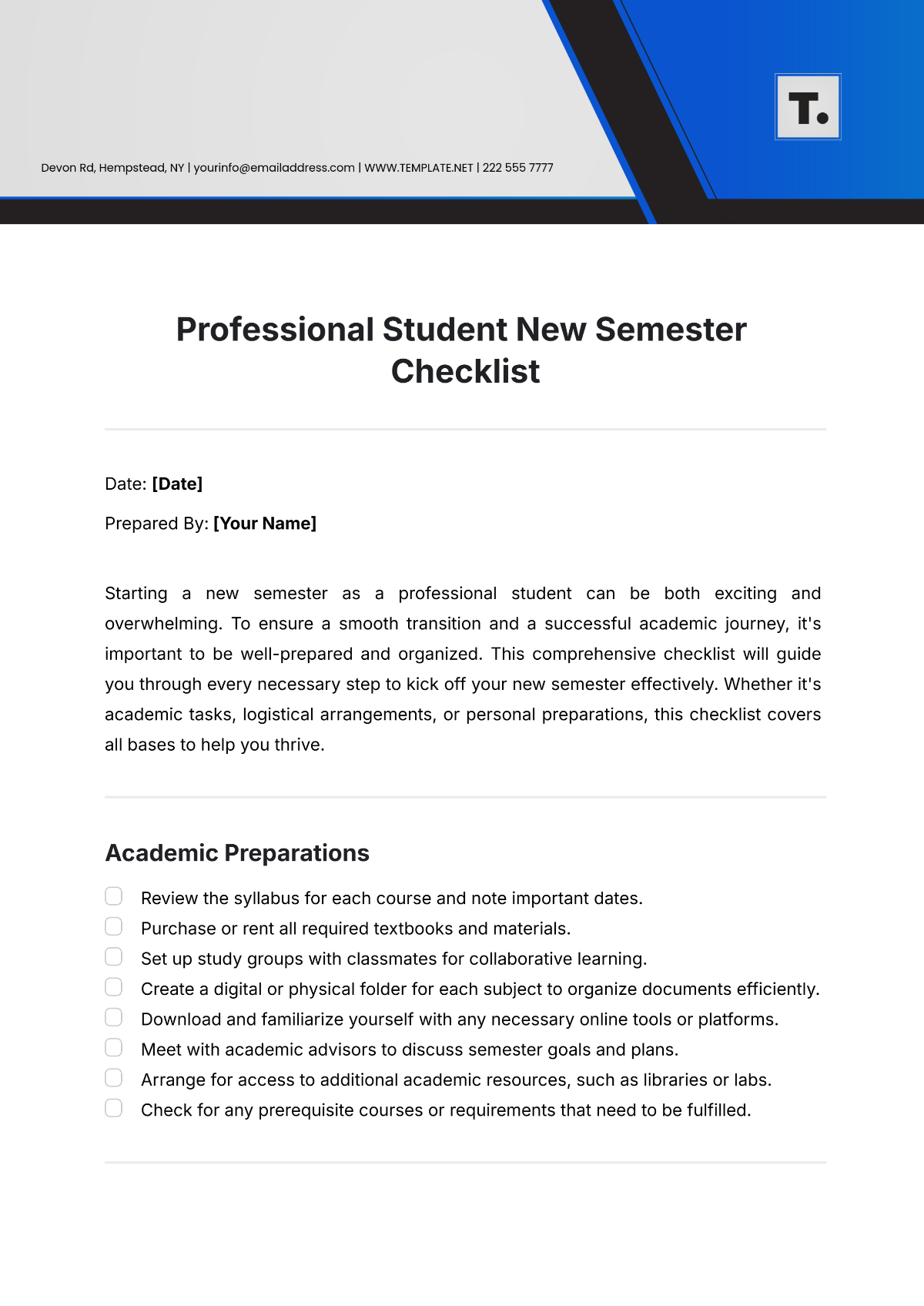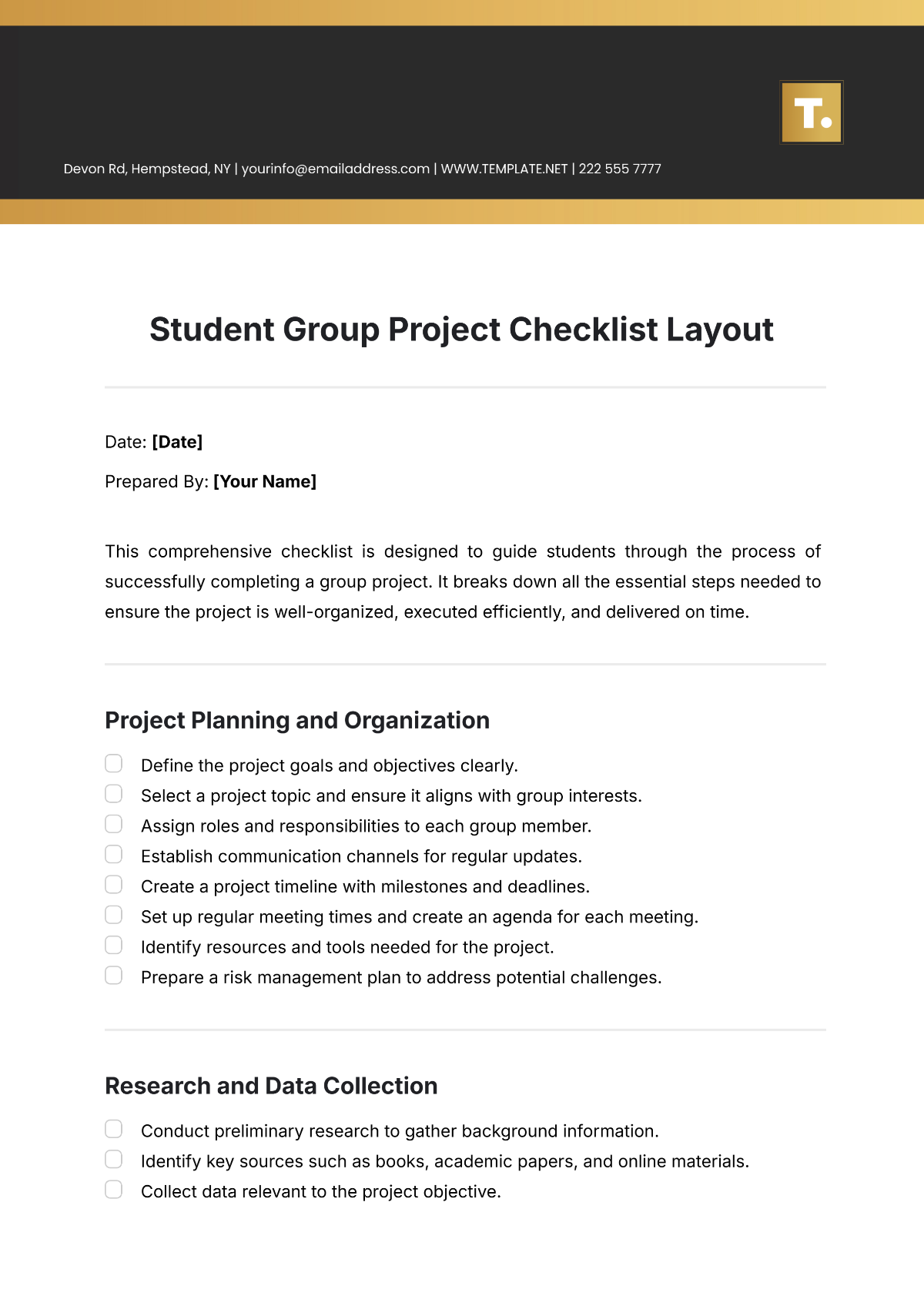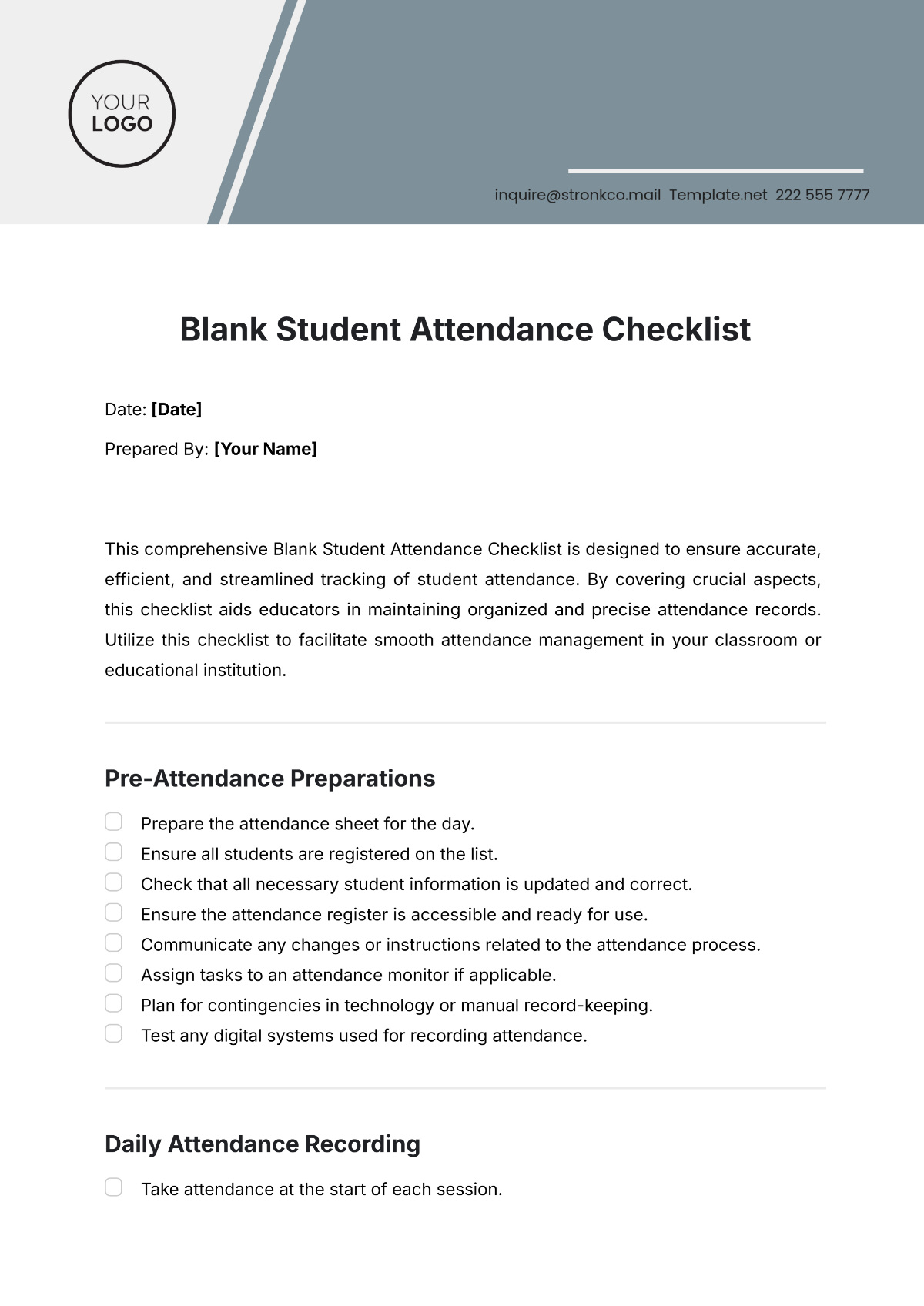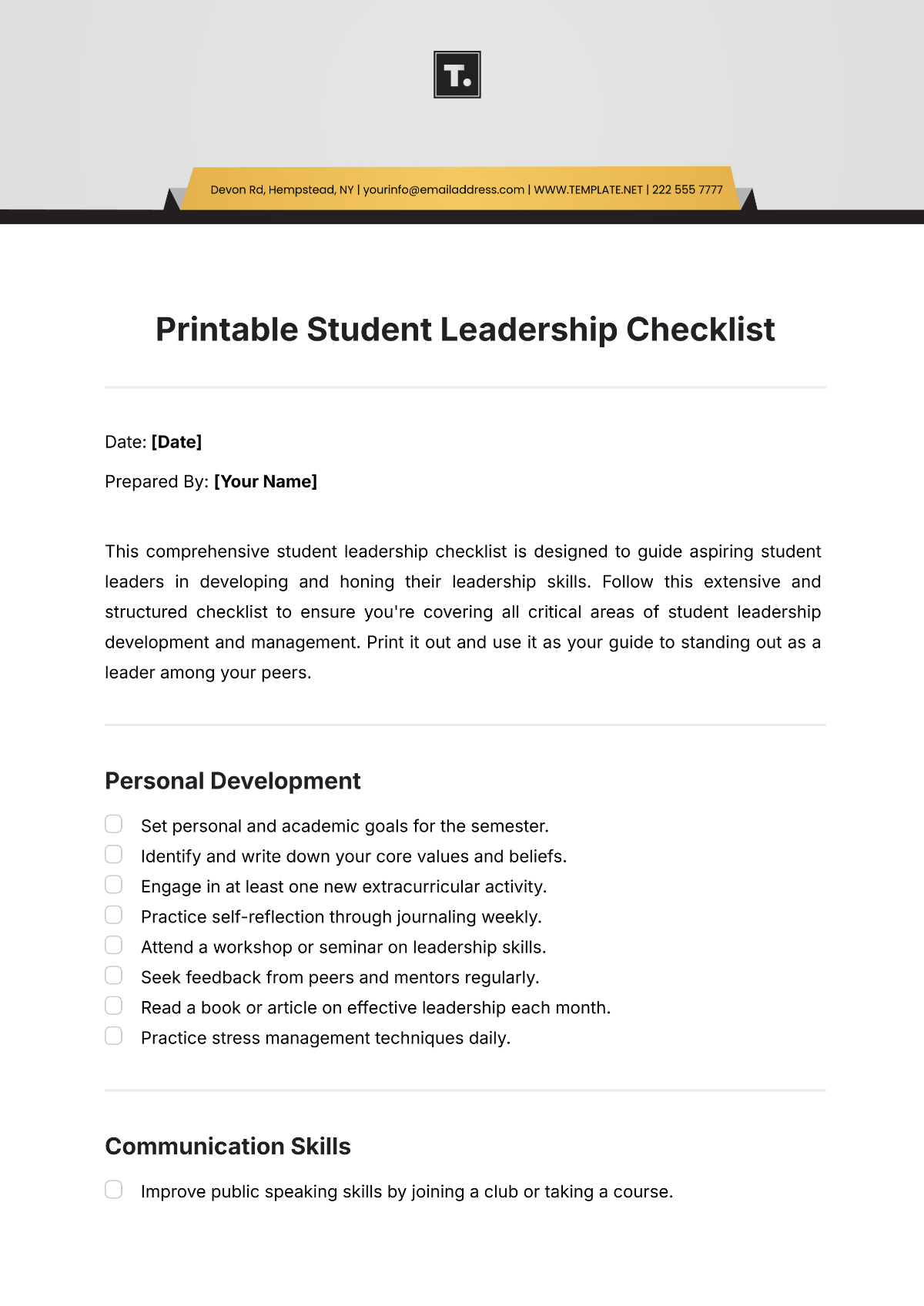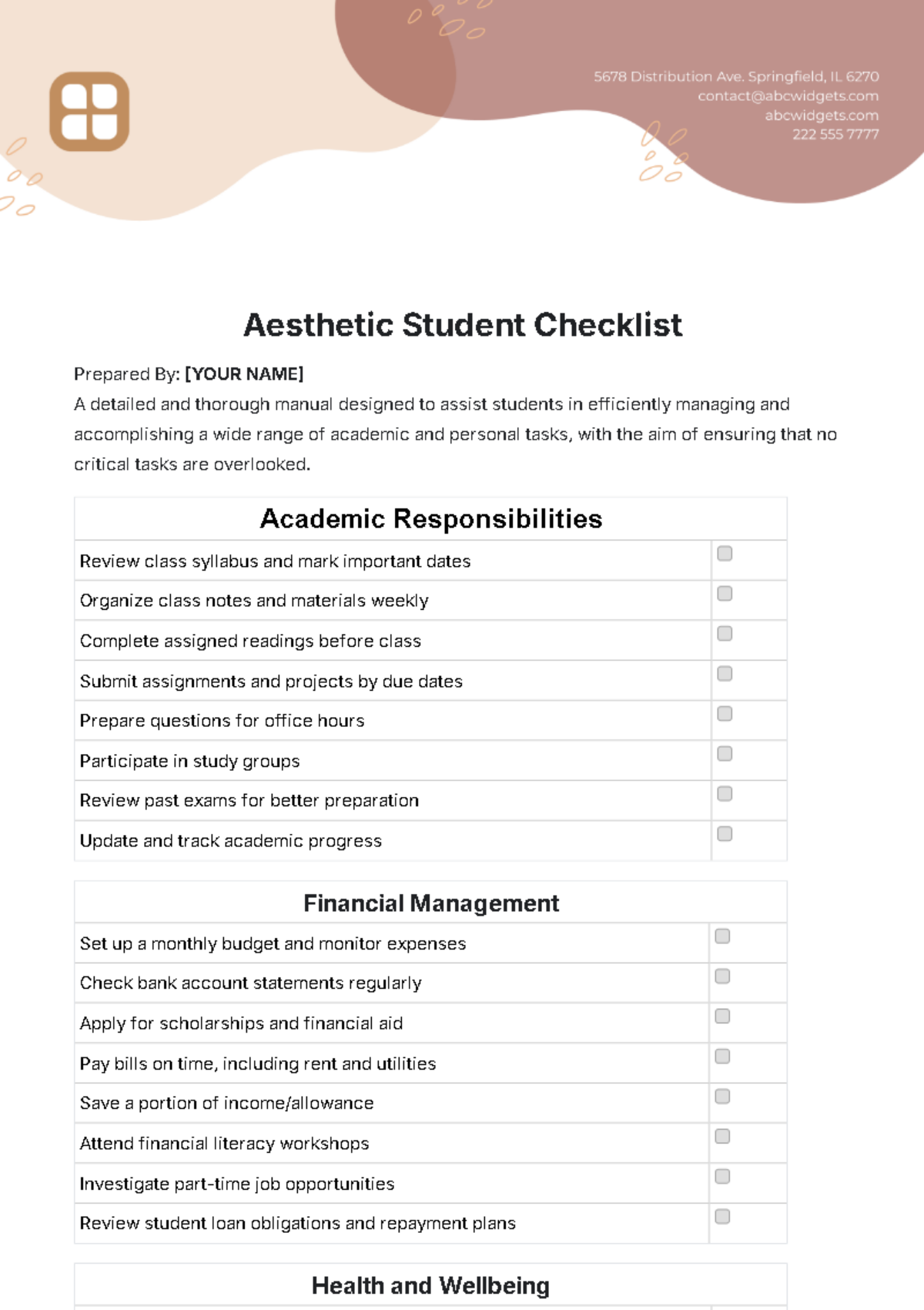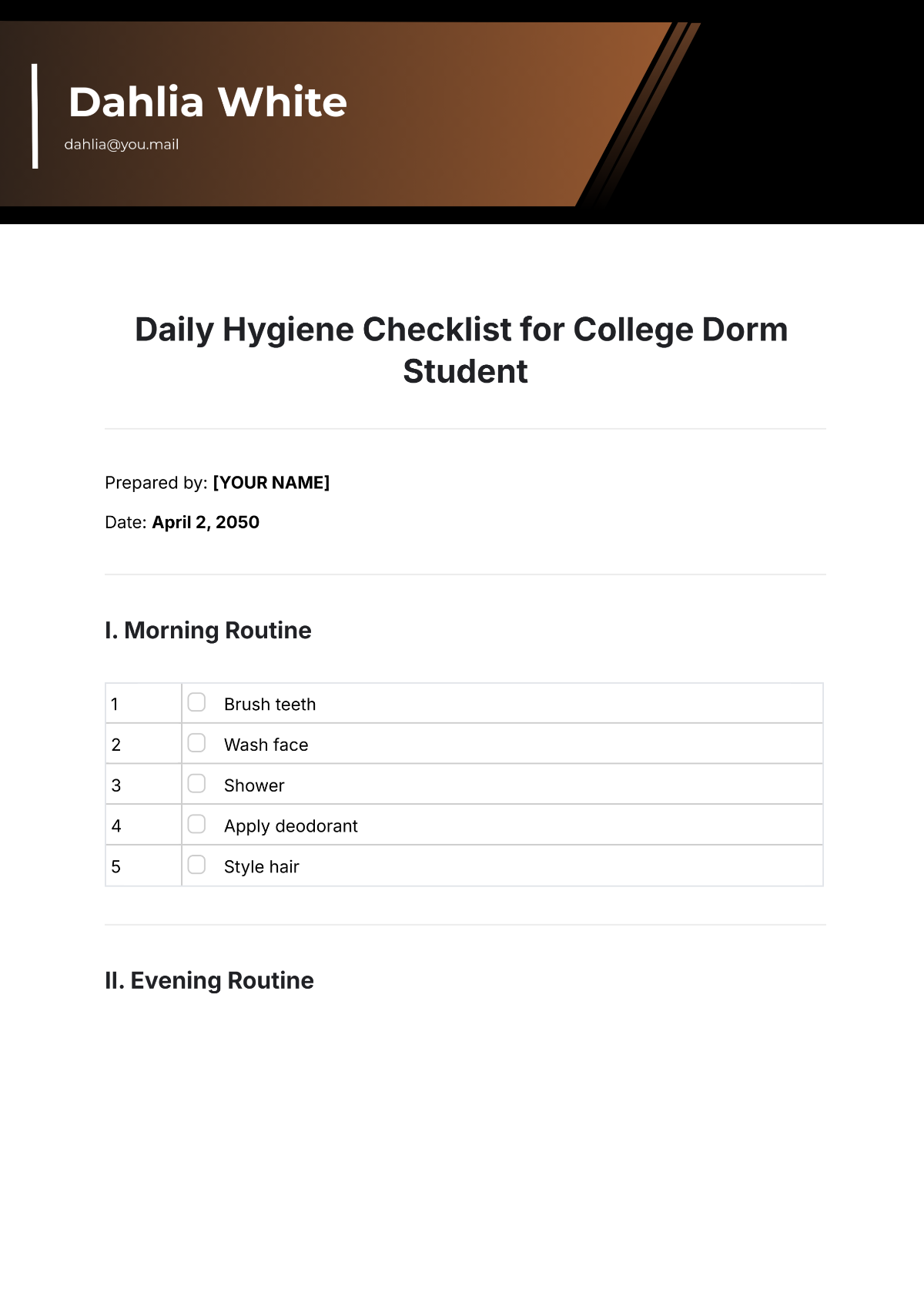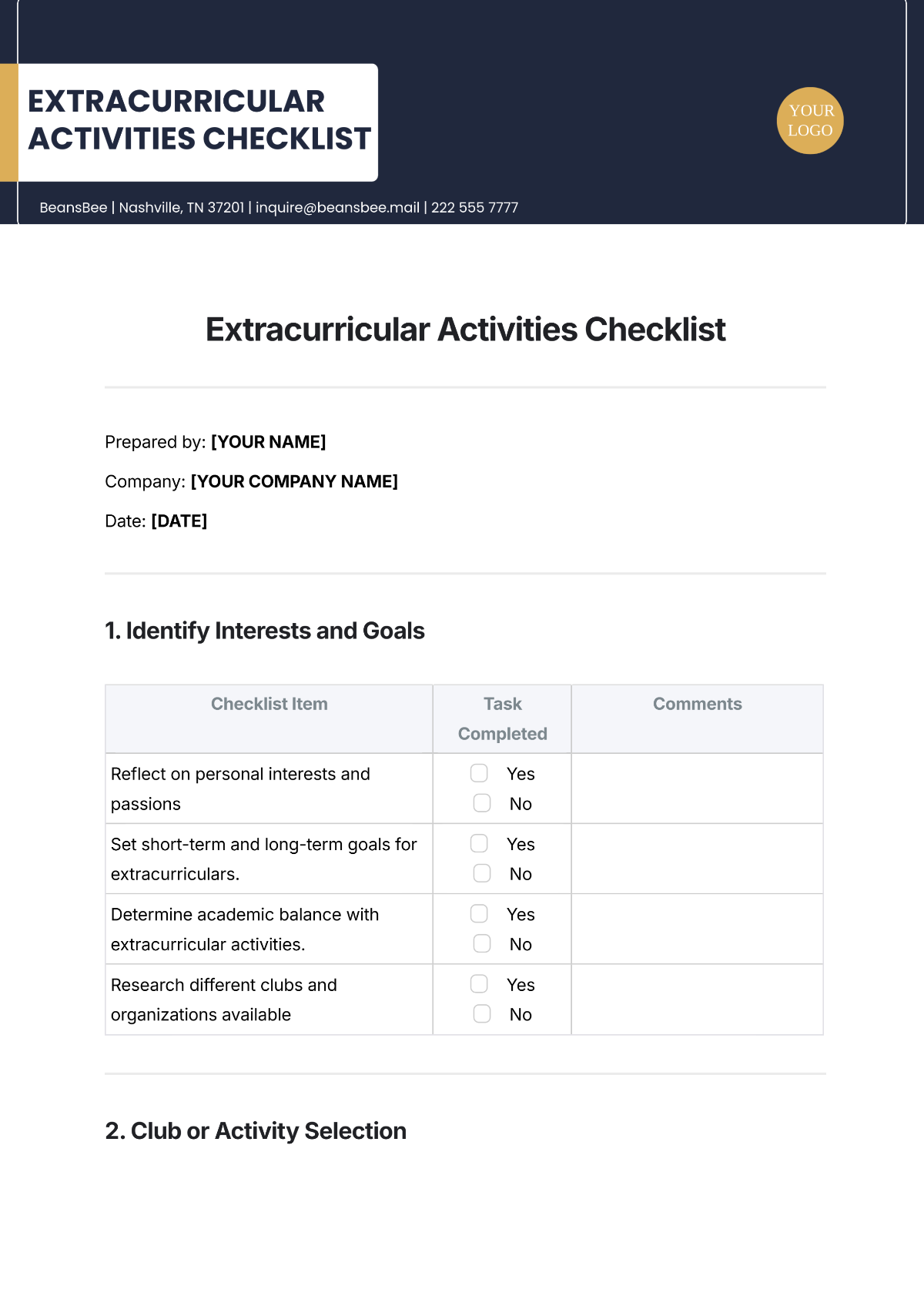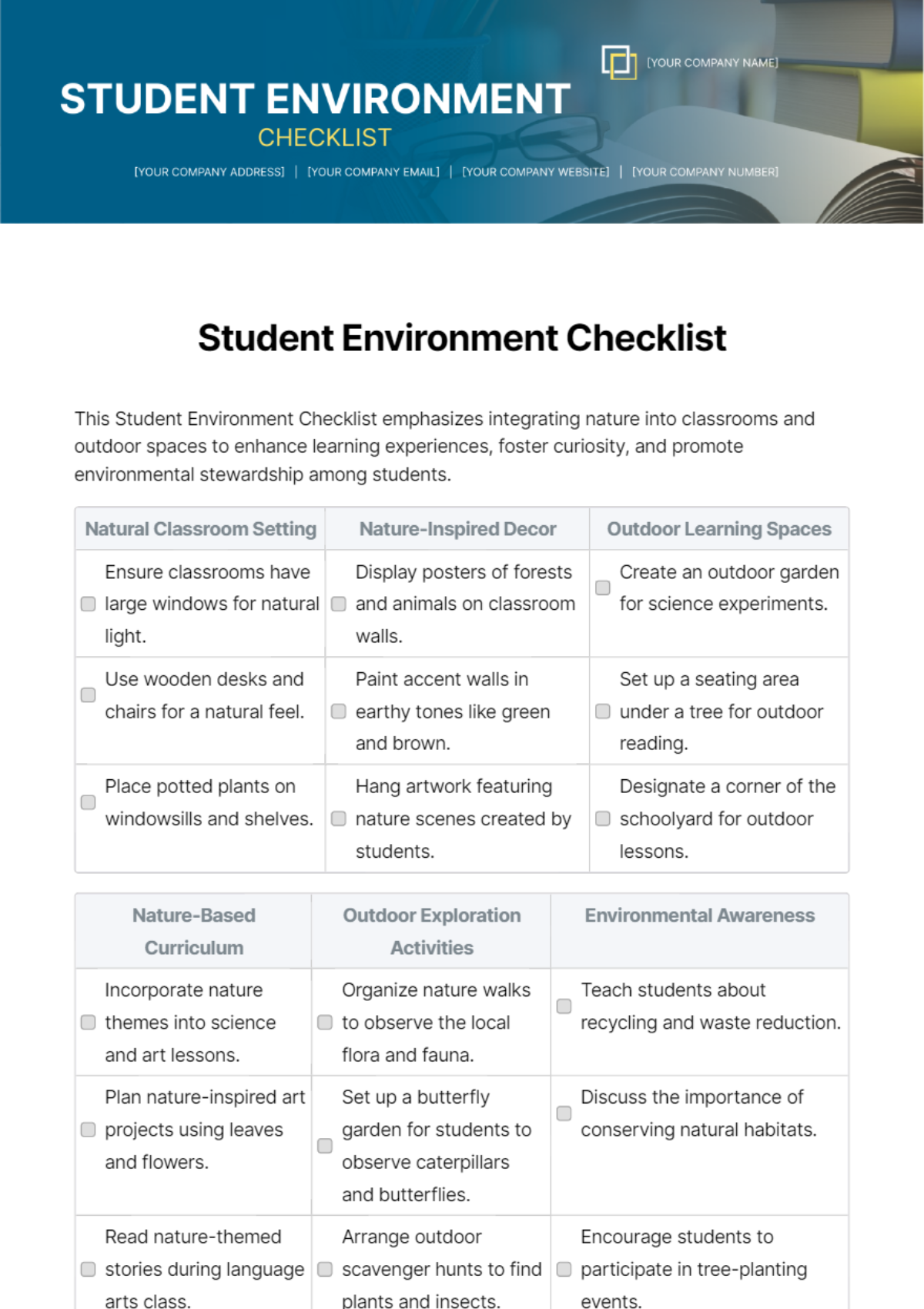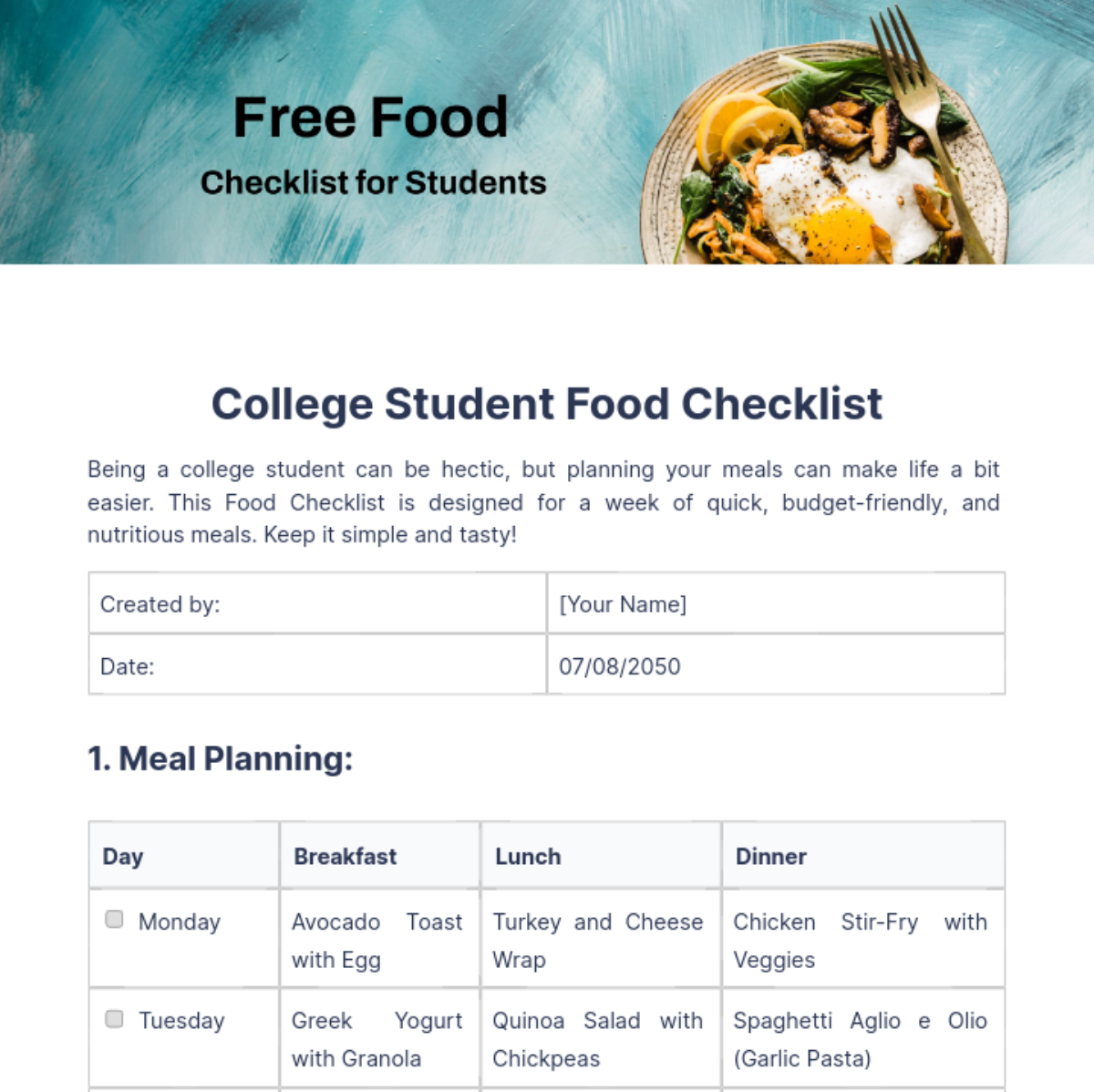STUDENT ONLINE CLASS CHECKLIST
Date: [Date]
Prepared By: [Your Name]
Embarking on online learning requires preparation to ensure a smooth and effective experience. This comprehensive checklist covers all necessary steps to get you ready and organized for your online classes. From technology setup to personal well-being, this guide aims to ensure you have everything in place for a successful academic journey.
Technical Setup
Check your computer specifications and ensure compatibility with online platforms.
Install necessary software and applications required for classes.
Update your operating system and web browsers to the latest versions.
Perform a speed test to ensure your internet connection is stable and fast enough.
Keep a tablet or smartphone handy as a backup for computer issues.
Ensure your webcam and microphone are working properly.
Set up a functional and comfortable study space with adequate lighting.
Create accounts and log into all required online learning platforms.
Materials Preparation
Obtain all required textbooks and study materials, both digital and physical.
Compile a list of additional resources like ebooks and online libraries.
Organize notes and previous course materials for easy access.
Download any course-related documents provided by instructors in advance.
Prepare digital folders and organize them by subject for efficient file management.
Keep notebooks and pens handy for quick notes.
Bookmark key reference websites or online resources in your browser.
Prepare a binder or digital folder for assignment submissions and records.
Time Management
Create a detailed weekly study schedule, including all class times and study sessions.
Set reminders for assignment due dates and upcoming exams.
Schedule specific days and times for each subject to balance your coursework.
Allocate time for breaks to prevent burnout and maintain productivity.
Use digital calendars or planners to keep track of commitments and updates.
Set attainable goals for each study session to maintain focus and motivation.
Identify and avoid peak distraction times based on your personal habits.
Prioritize tasks daily by importance and deadline to manage your workload effectively.
Communication
Set up a school email account and check it regularly for correspondence.
Introduce yourself to instructors and peers via online class forums or email.
Ensure your preferred messaging apps are installed for quick communications.
Join class groups on social media platforms for informal updates and support.
Know the office hours and contact information of your instructors.
Establish a communication plan with classmates for group projects.
Maintain a professional tone in all written communications.
Familiarize yourself with video conferencing protocols and etiquette.
Self-Care and Well-being
Promote a healthy study environment with ergonomic furniture.
Stay hydrated and have healthy snacks available to fuel study sessions.
Incorporate regular exercise into your daily routine to enhance focus and mood.
Ensure you get enough sleep each night to support concentration and memory.
Schedule time for hobbies and relaxation to manage stress levels.
Engage in social interactions with family and friends to maintain a support network.
Practice mindfulness or meditation techniques to improve mental clarity.
Seek help from counseling services if feeling overwhelmed or anxious.
Course Engagement
Attend all virtual classes and participation is encouraged.
Actively participate in discussions and ask questions for clarification.
Take notes during lectures and review them regularly.
Complete all assignments and submit them by established deadlines.
Utilize instructor feedback to improve future coursework.
Engage with additional readings and resources provided to enhance learning.
Reach out for clarification or help whenever concepts are unclear.
Give yourself credit for your efforts and celebrate your achievements.
Administrative Requirements
Register for all required courses and ensure enrollment is confirmed.
Pay tuition fees and keep a record of payments and receipts.
Review course syllabi for important dates, policies, and requirements.
Understand the online learning platform's navigation and features thoroughly.
Sign any necessary forms or agreements requested by your school.
Keep track of formal announcements and policy changes from your institution.
Ensure all personal and contact information is updated in the school records.
Check eligibility for scholarships or financial aid and apply if necessary.
Personal Development
Set long-term educational and career goals to stay motivated.
Identify skills you want to develop and seek relevant online workshops.
Register for any extracurricular activities or clubs through online formats.
Attend online networking events to expand professional connections.
Seek mentorship or career advice from instructors or professionals.
Reflect on personal progress regularly and adjust goals as necessary.
Attend webinars or guest lectures related to your field of study.
Explore online platforms for resume building and job hunting strategies.
Additional Reminders
Regularly back up your digital work to prevent data loss.
Use strong passwords and update them regularly to ensure cybersecurity.
Keep emergency contact information easily accessible.
Stay informed on global events that may affect your course schedule.
Utilize online learning forums and resources for additional support.
Customize notification settings on apps to avoid interruptions.
Be adaptable to technology changes and platform updates.
Stay positive and motivated throughout your learning journey.
